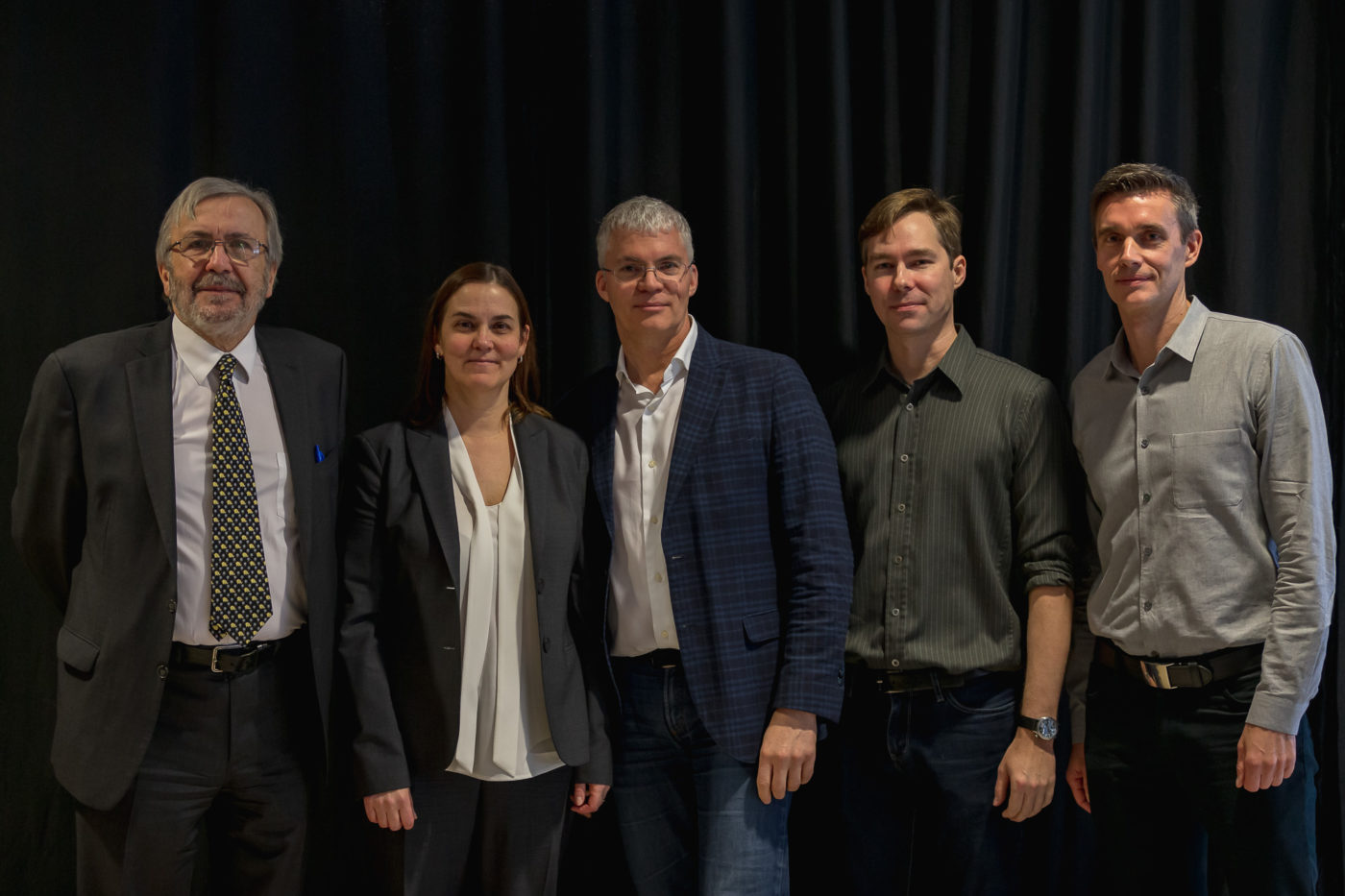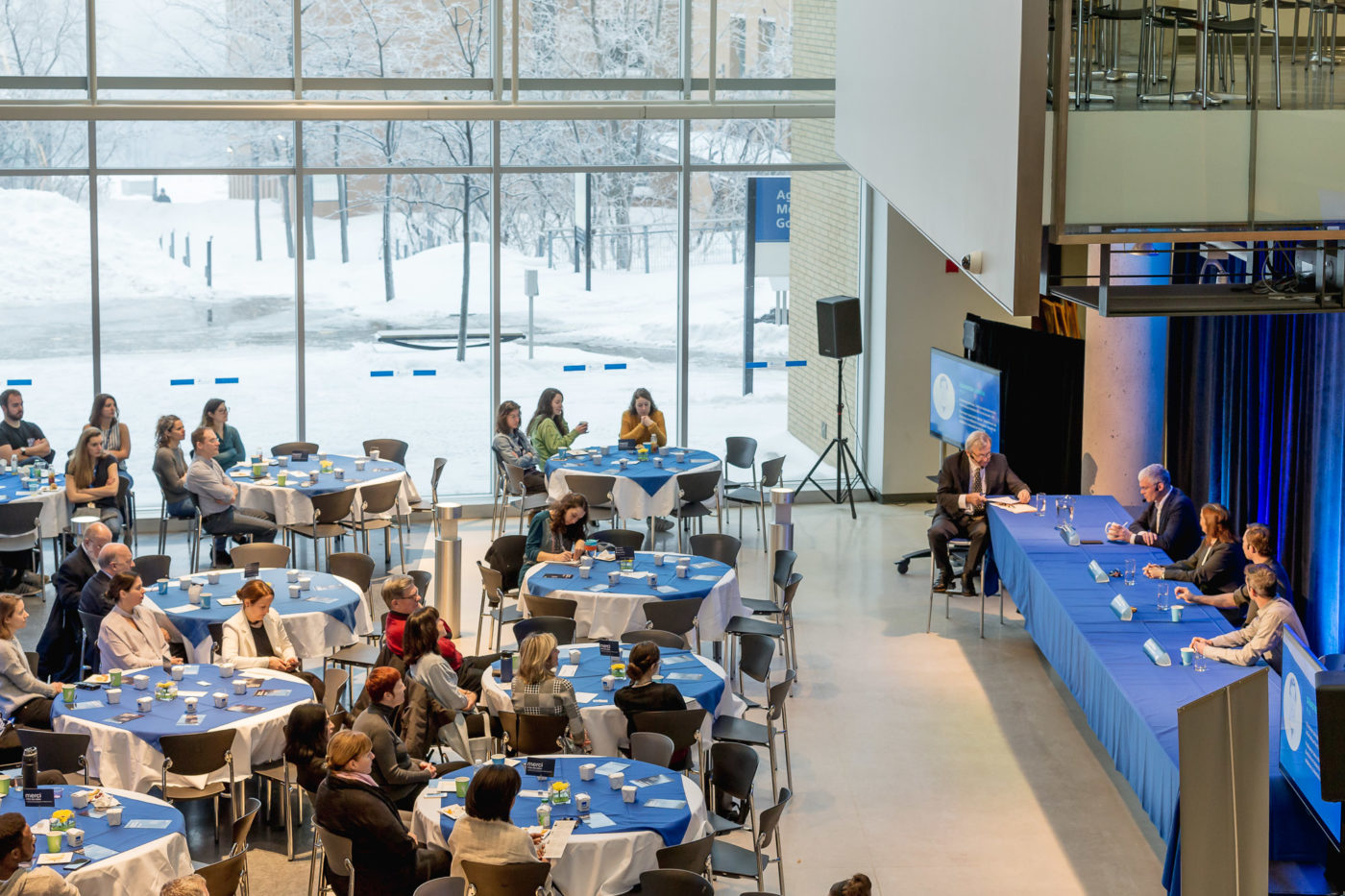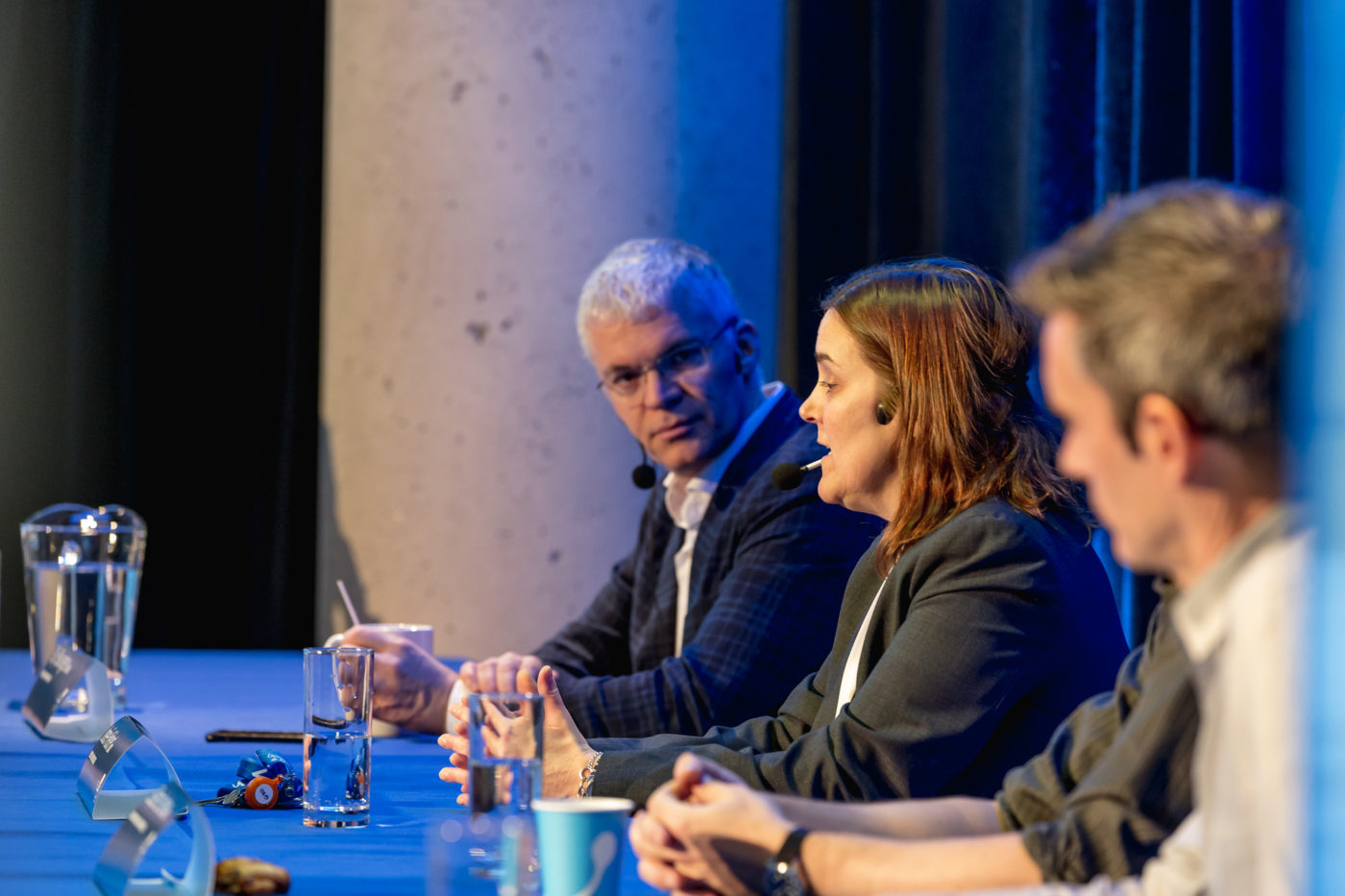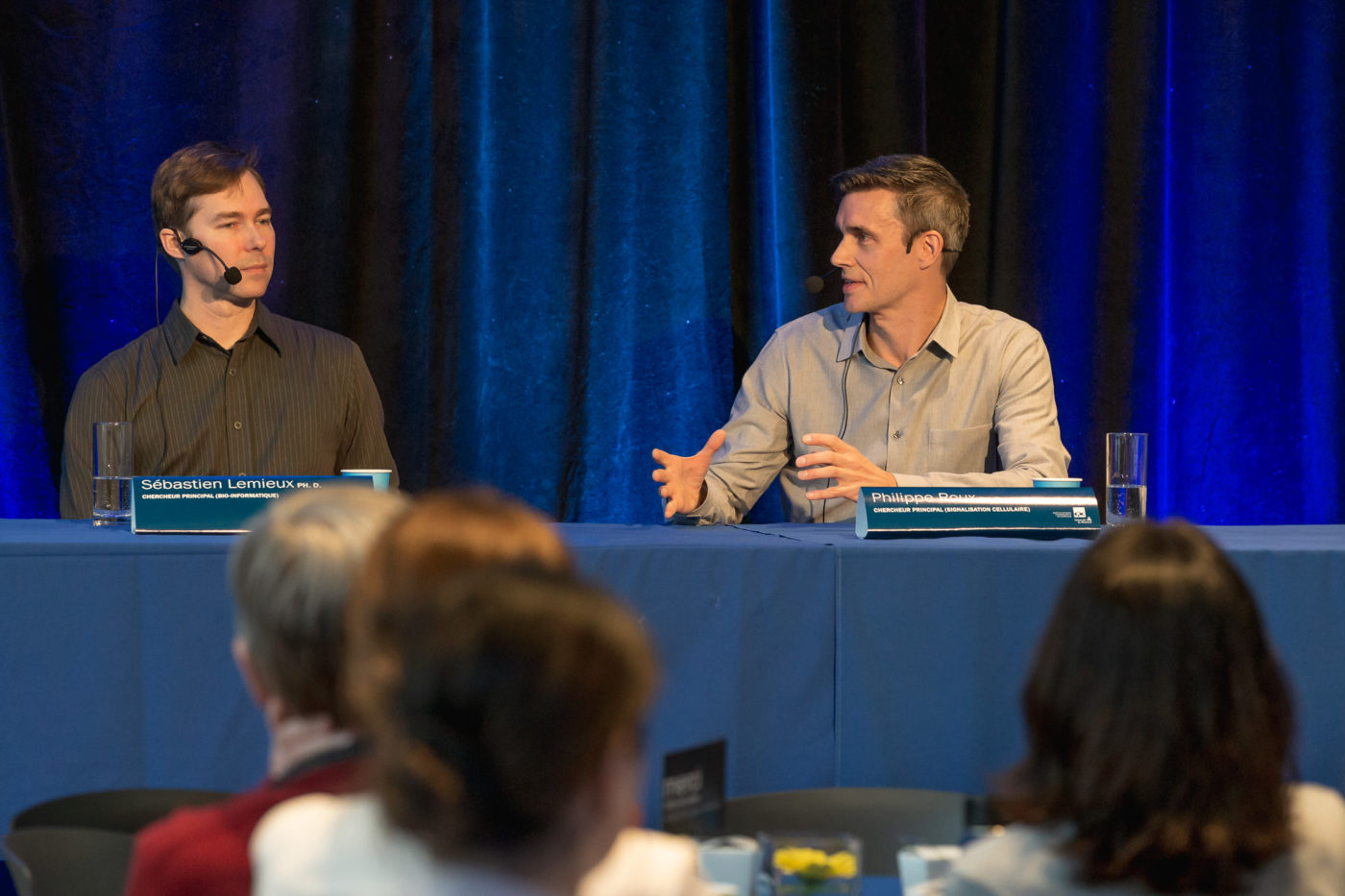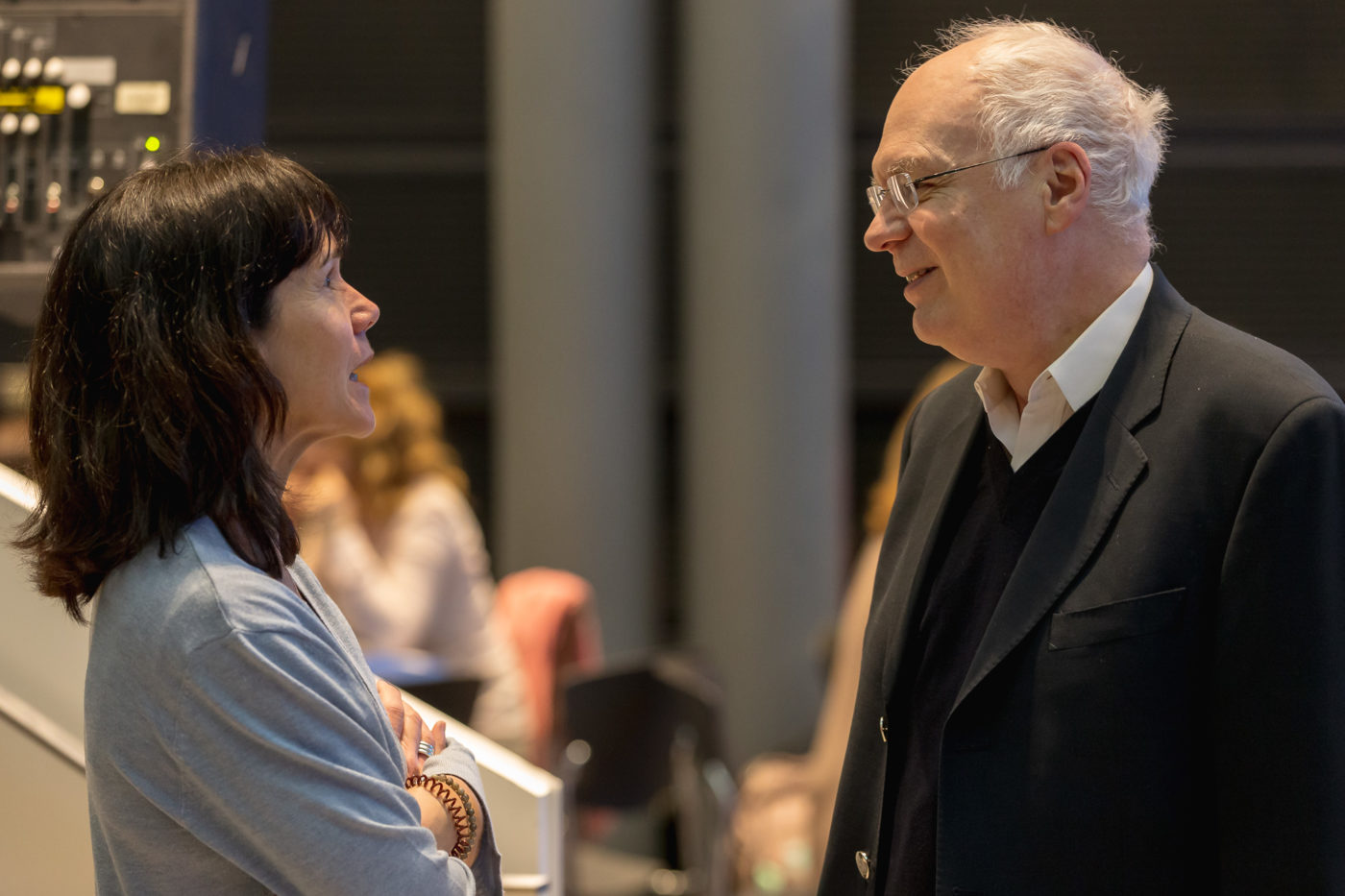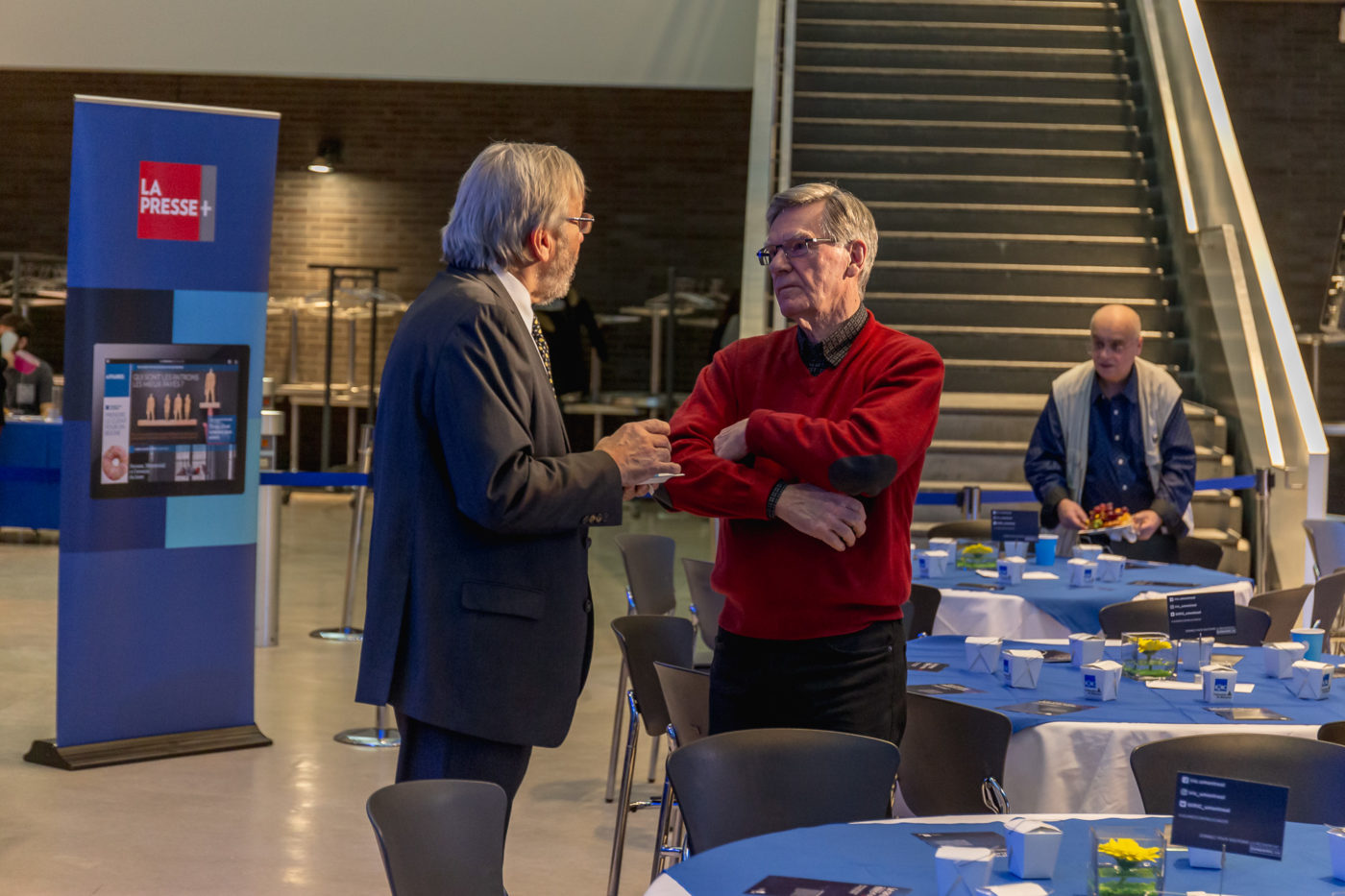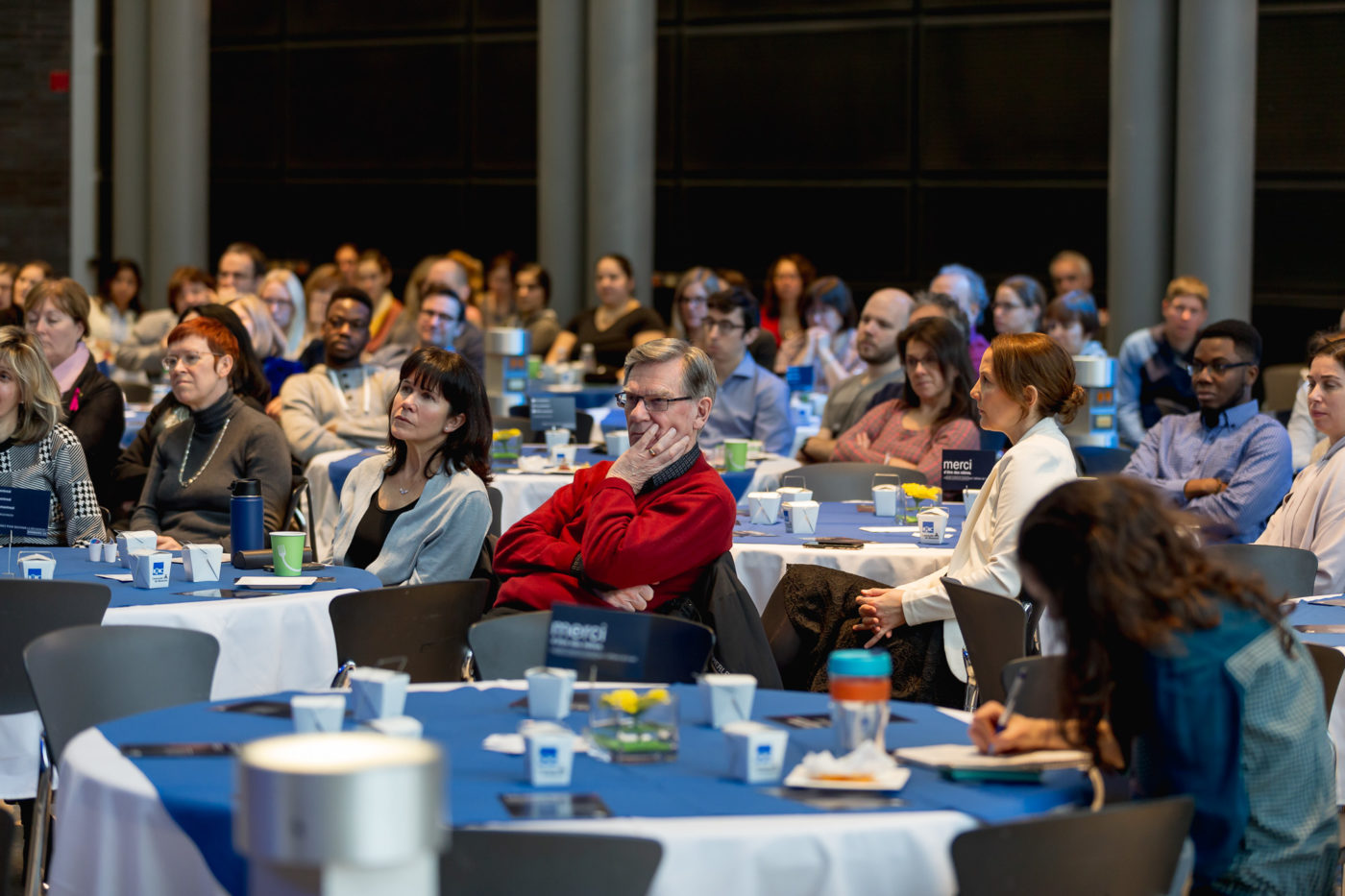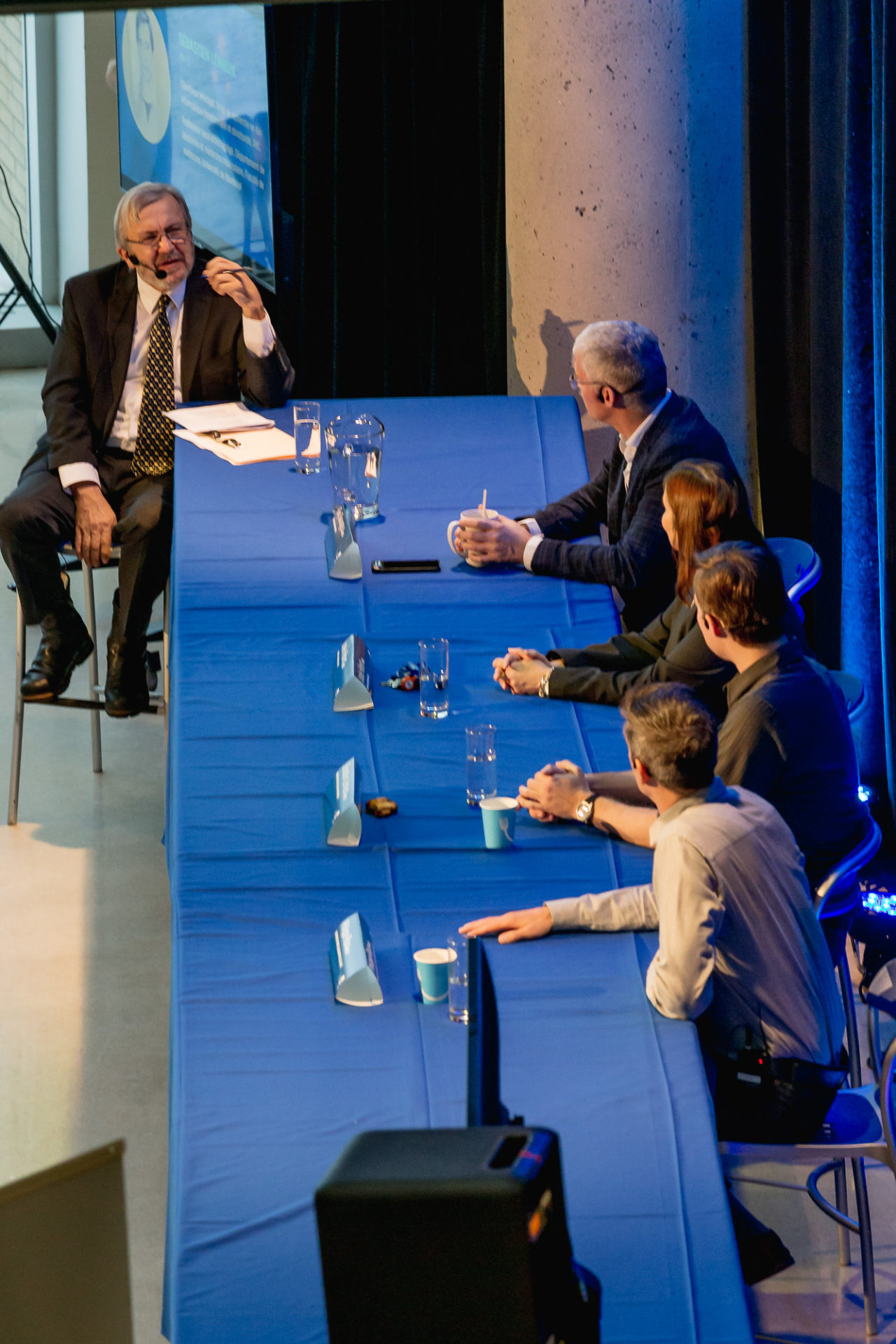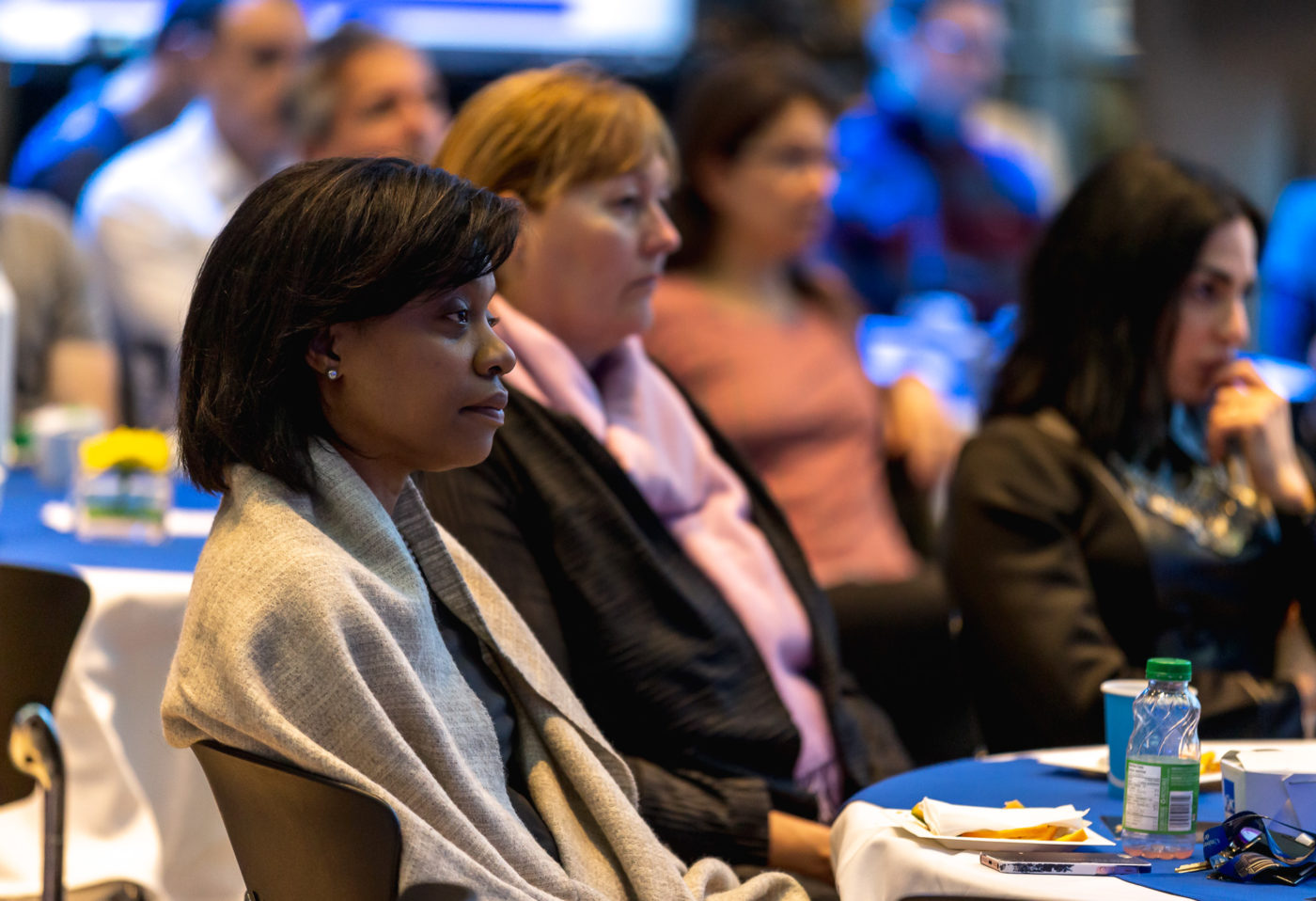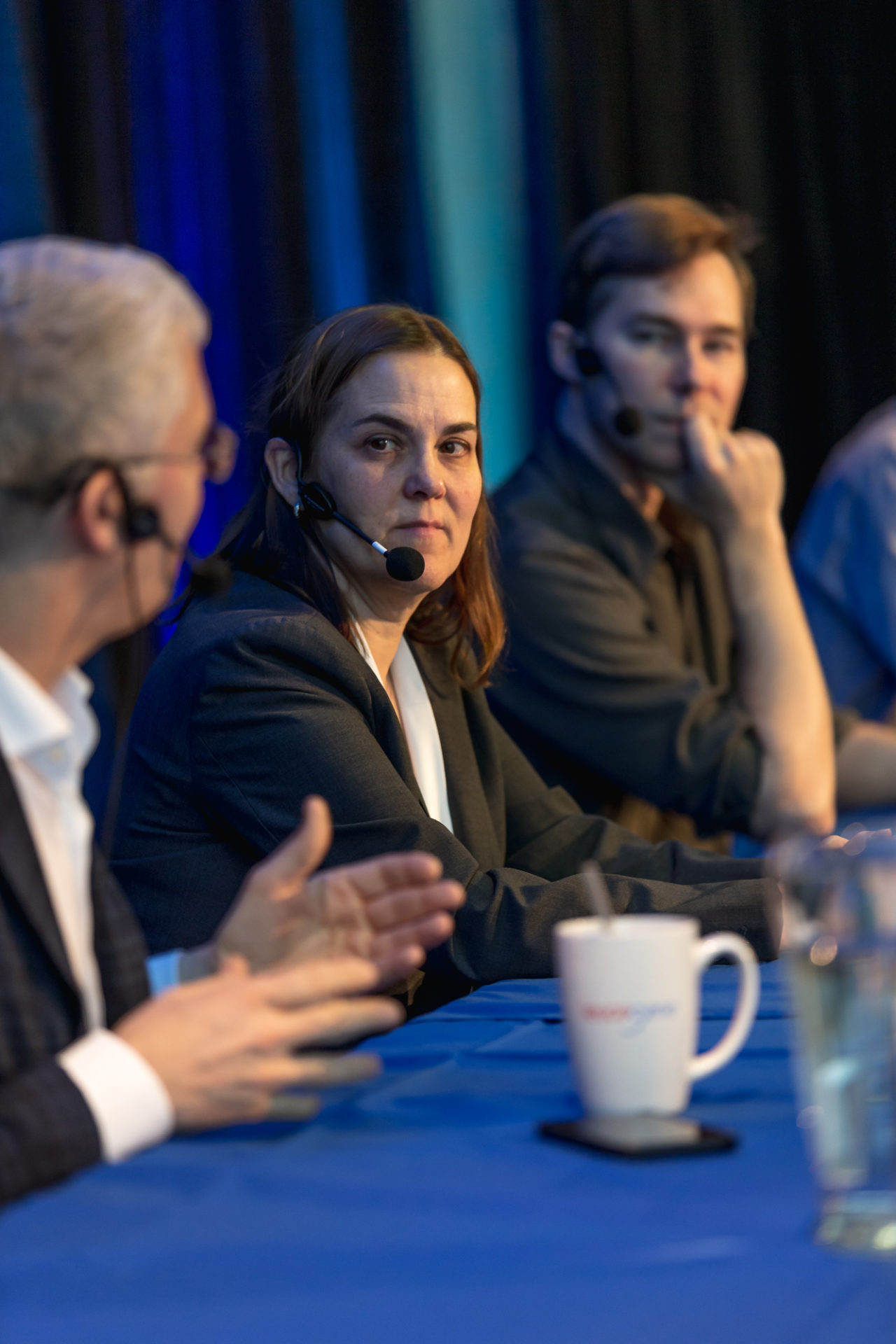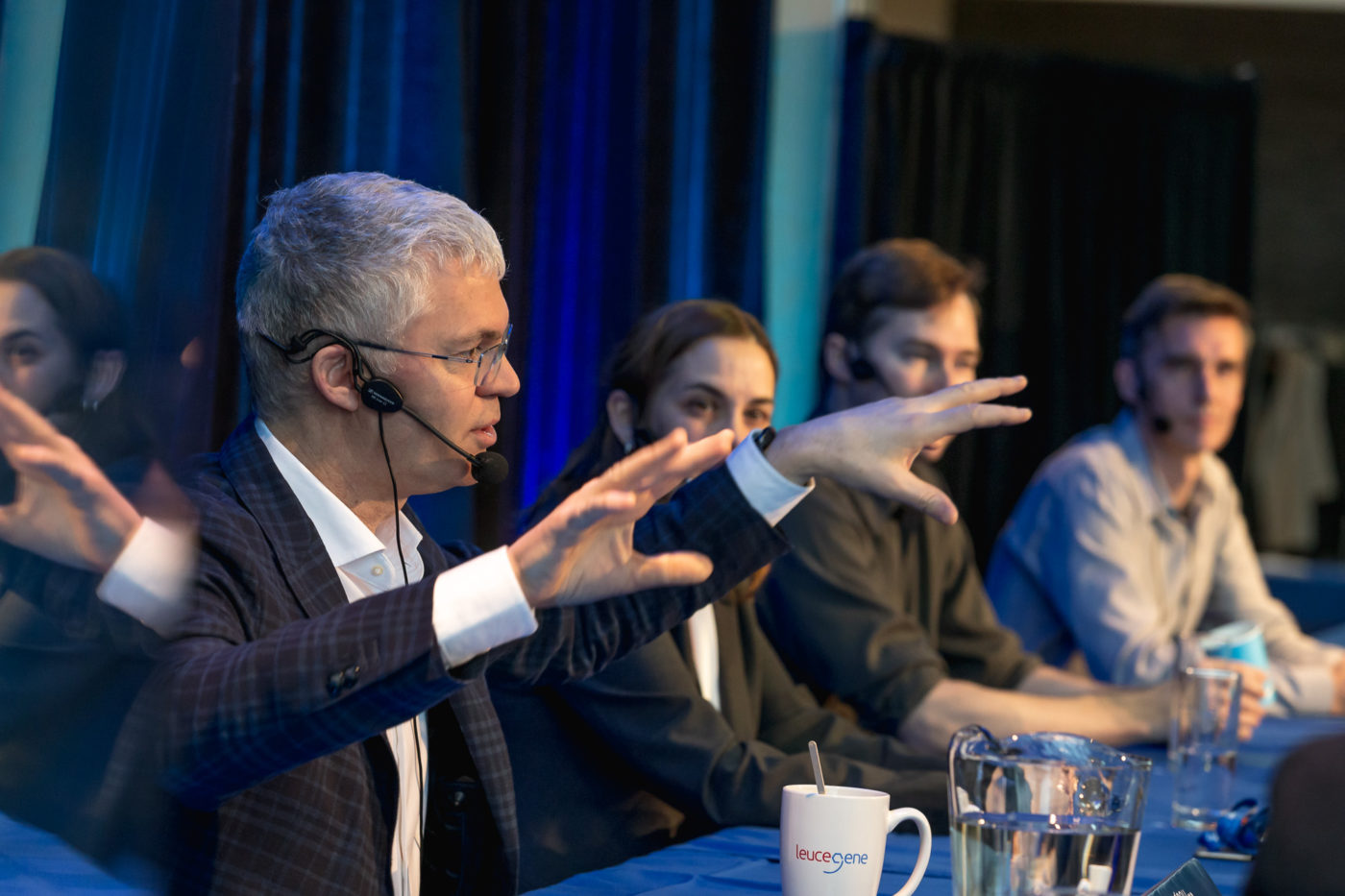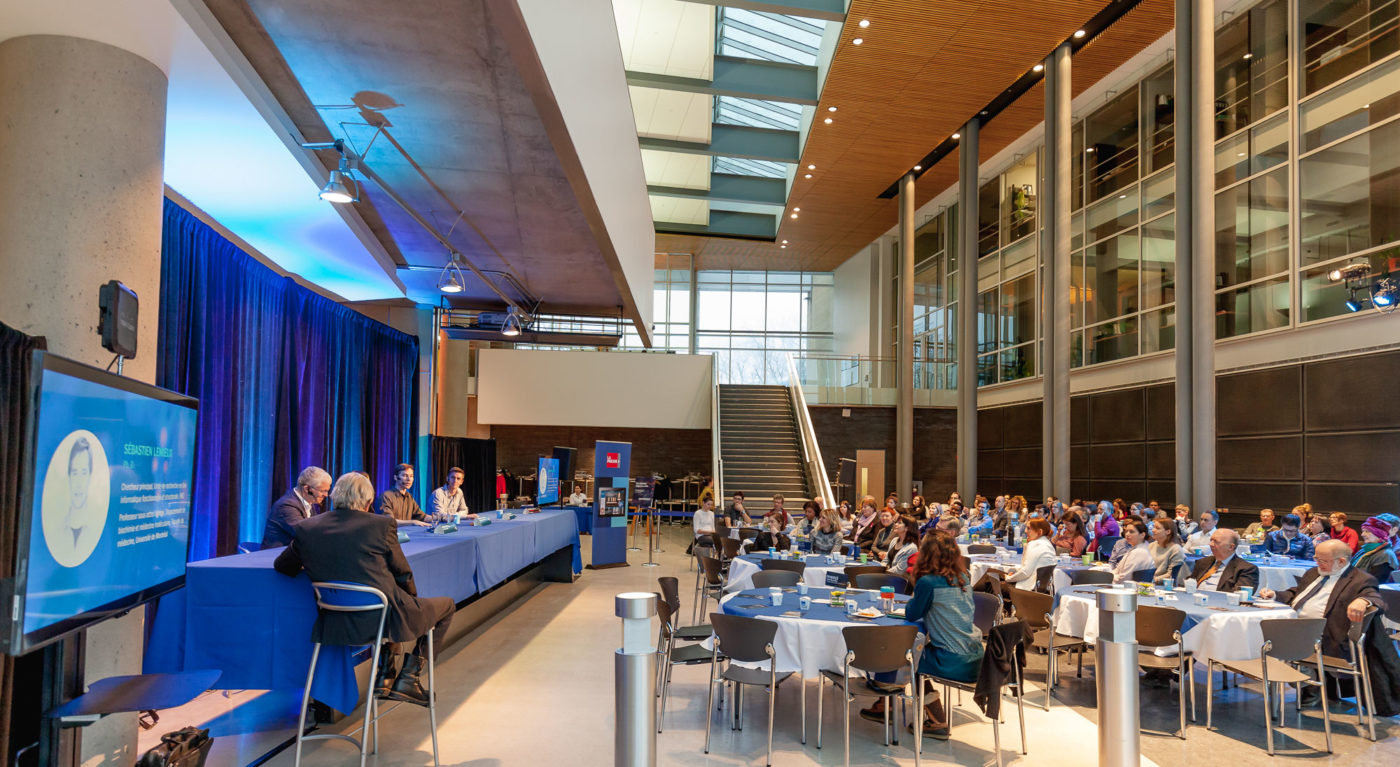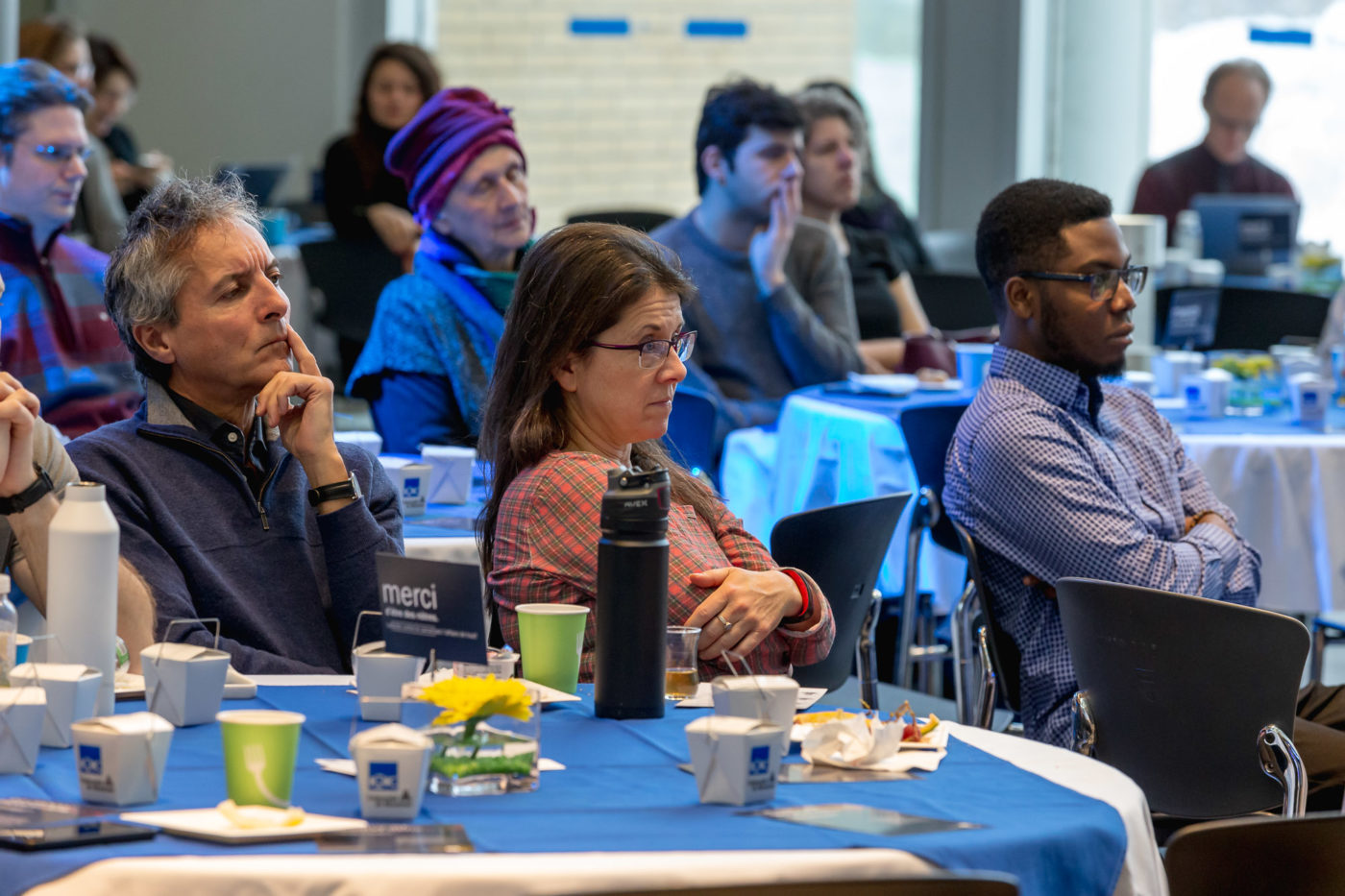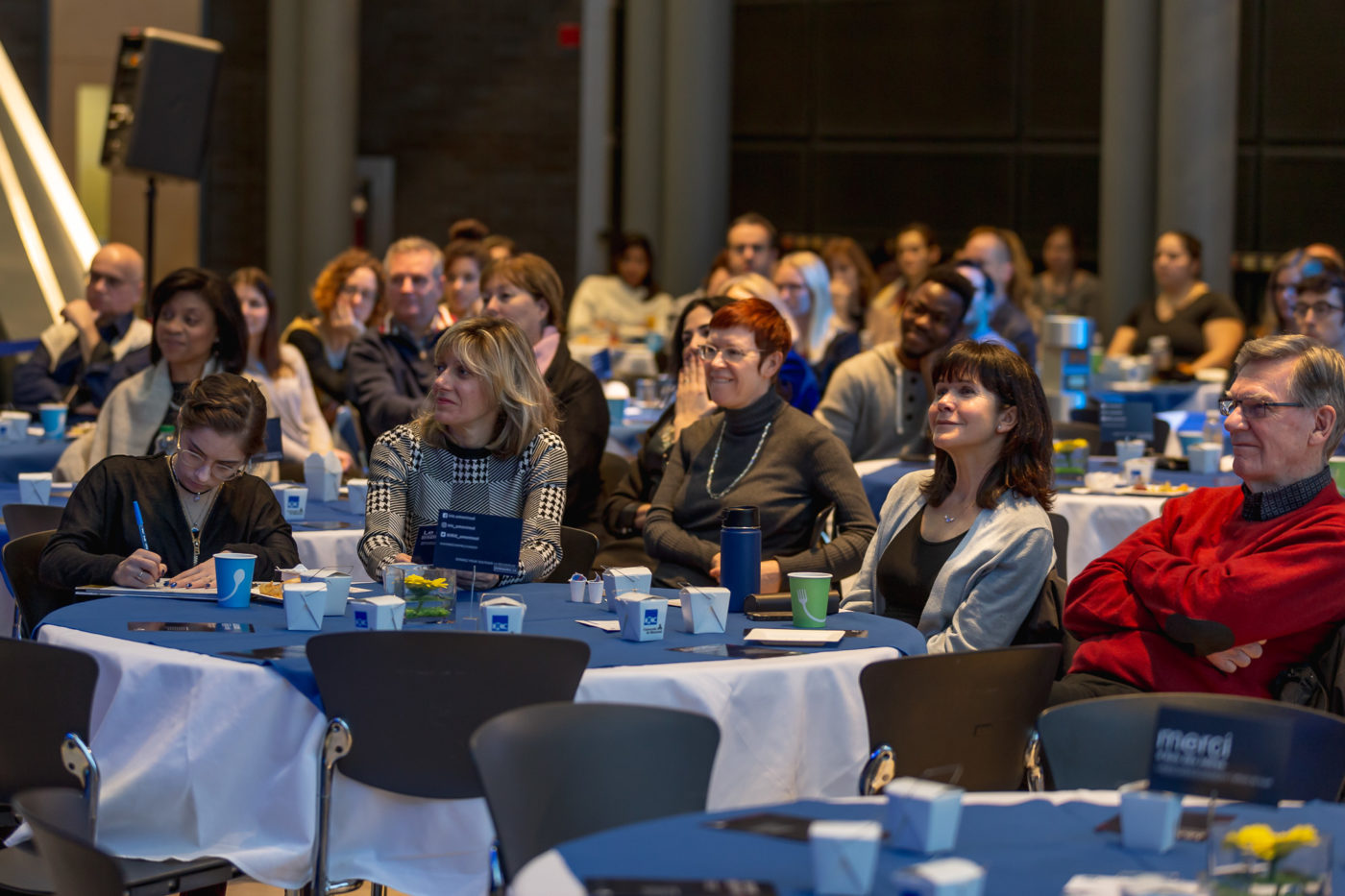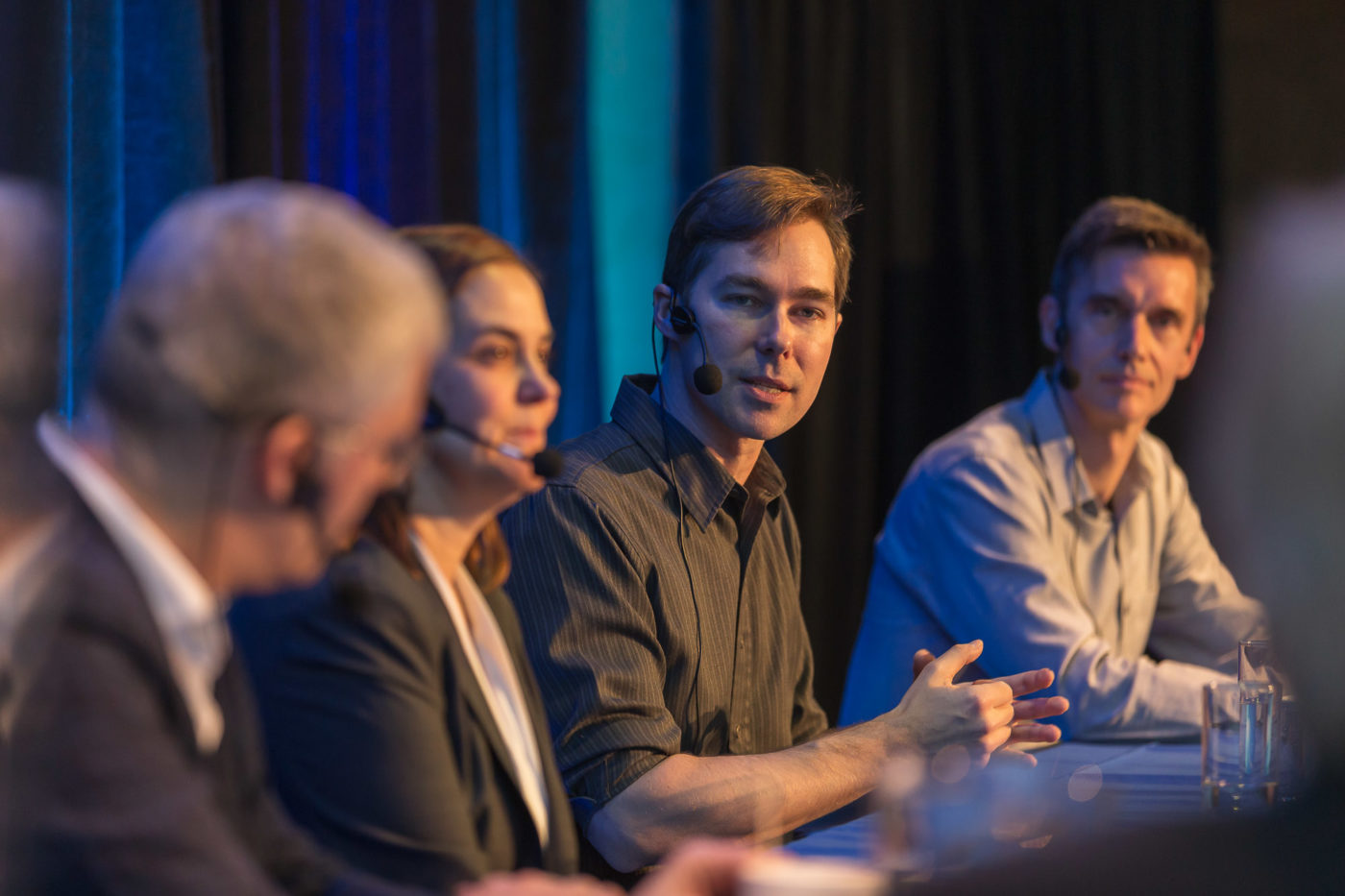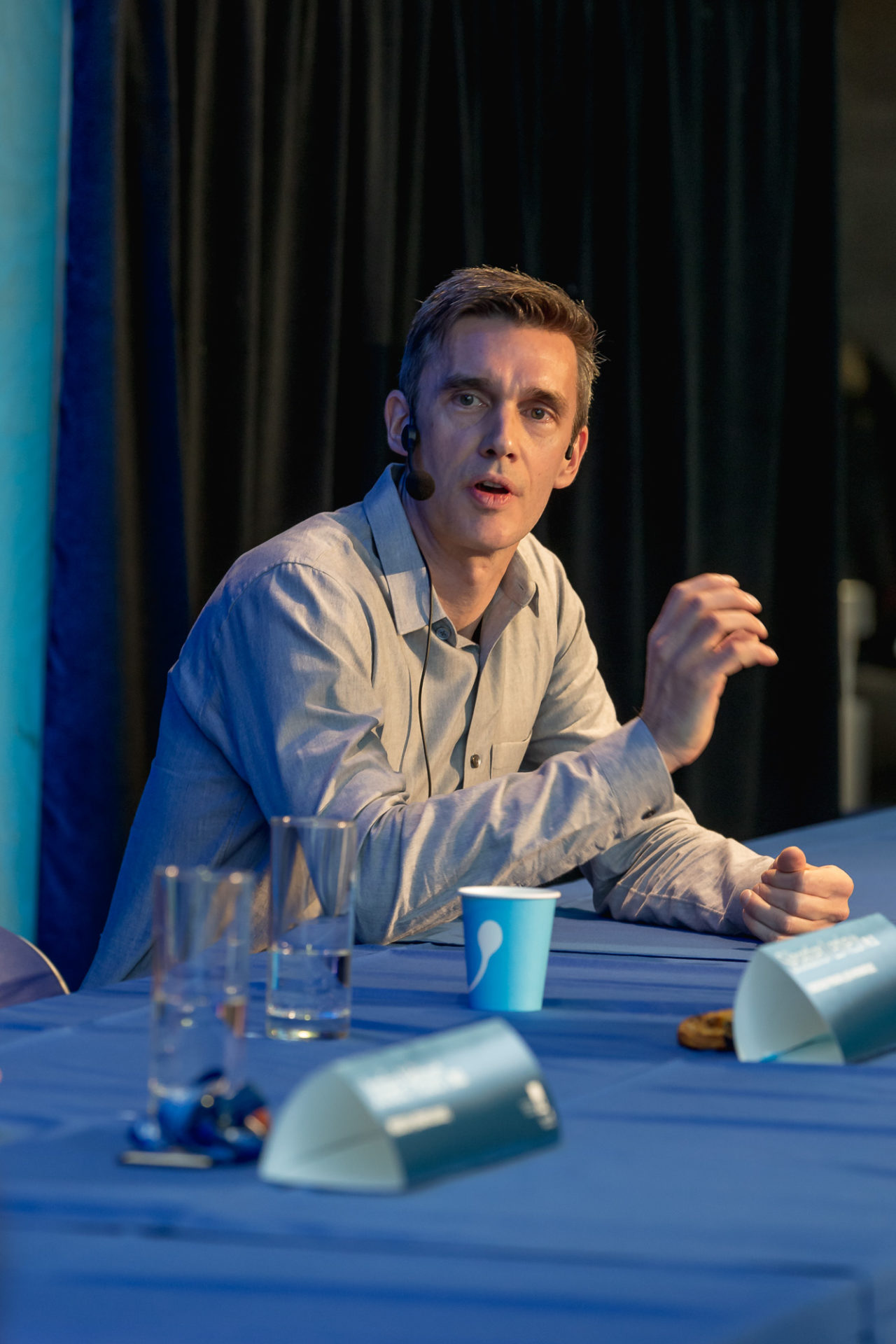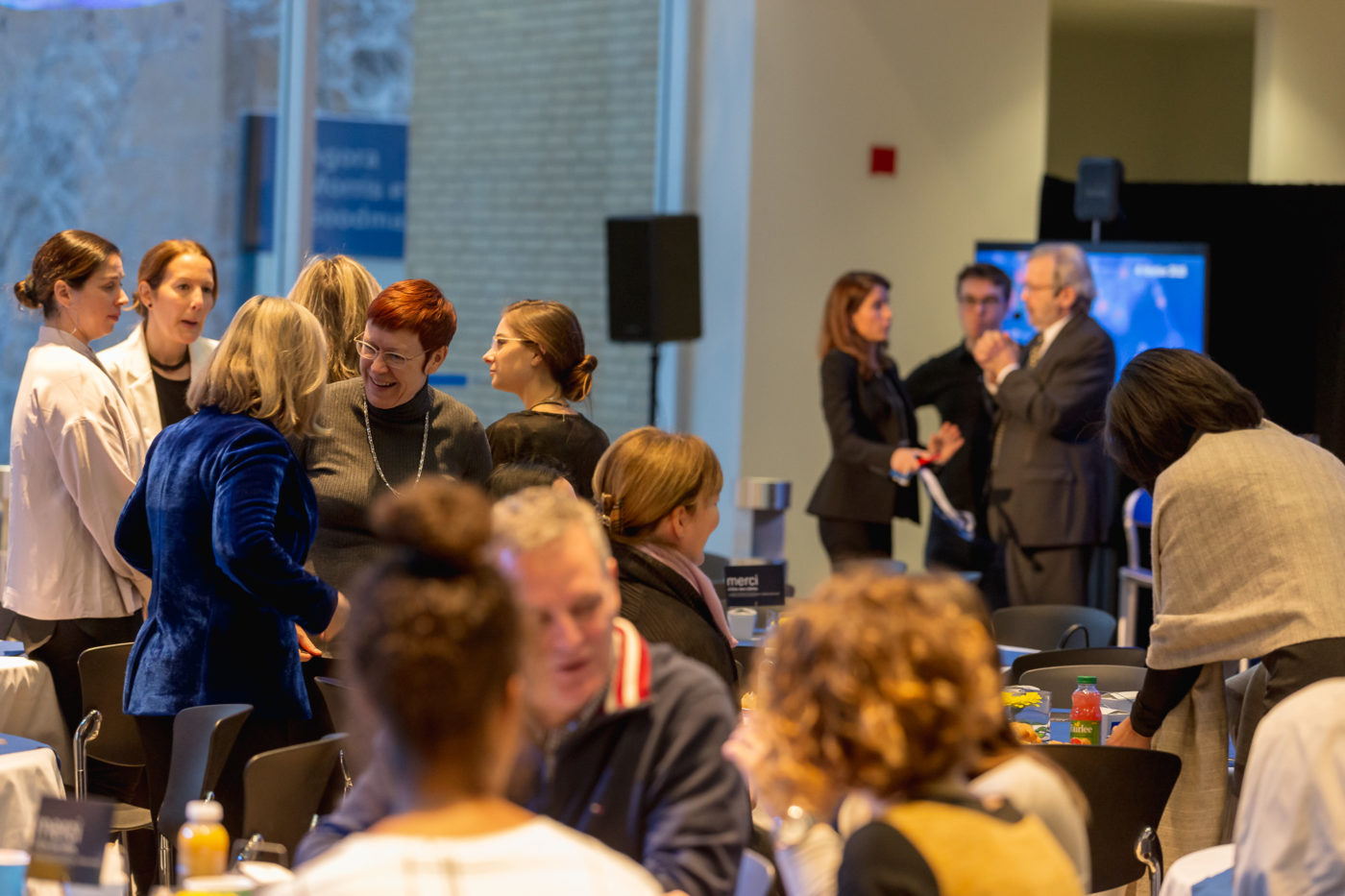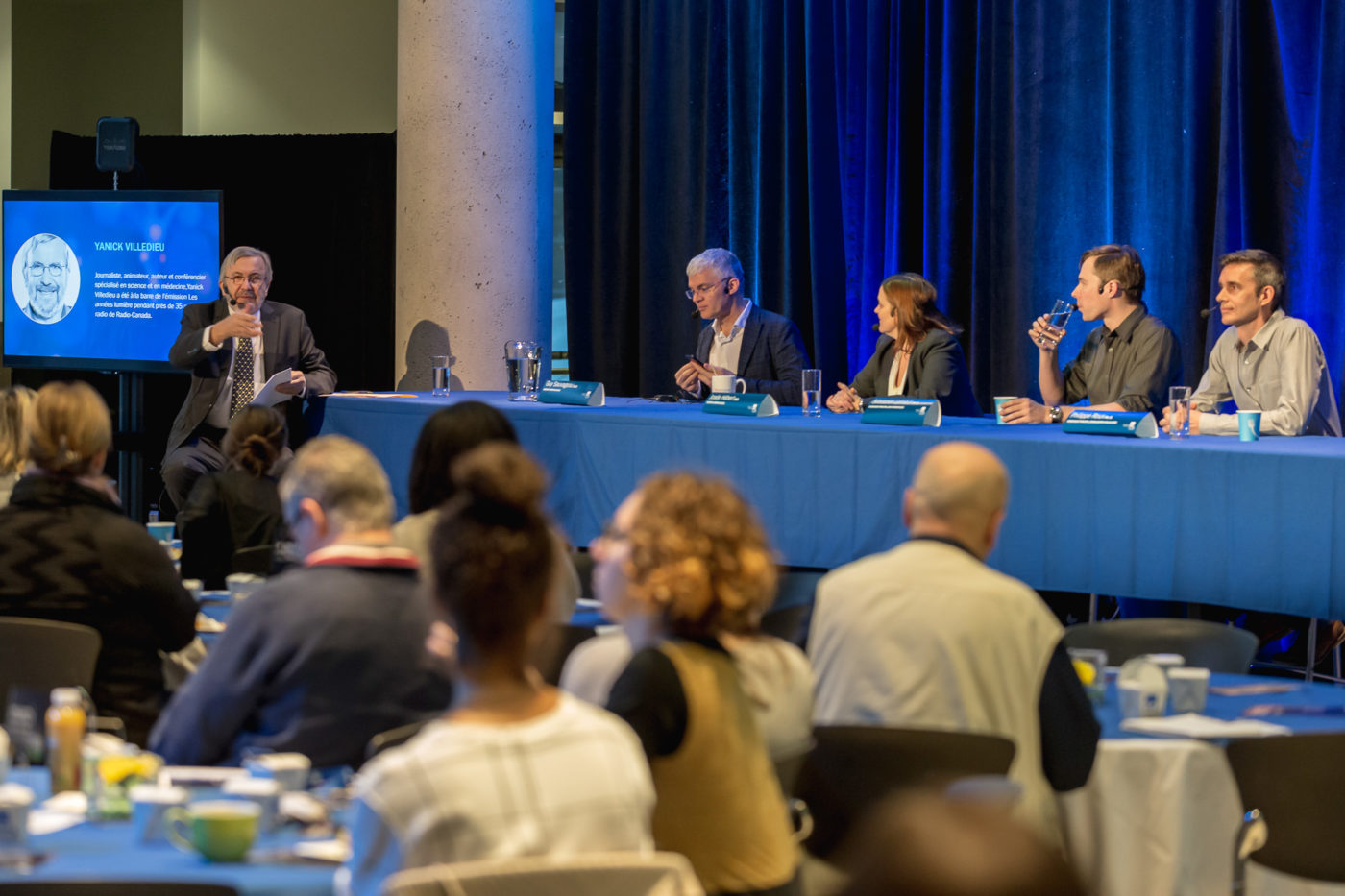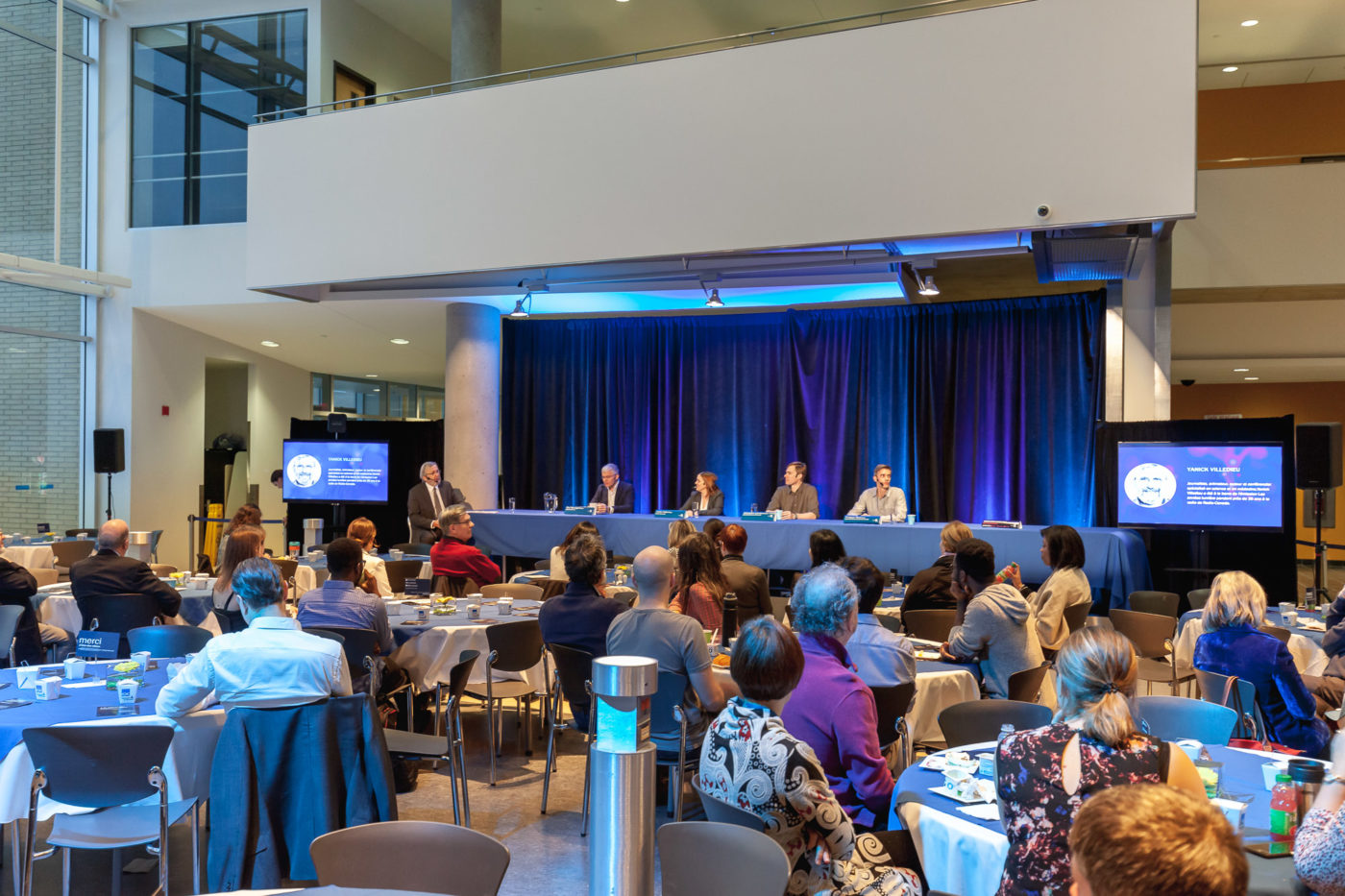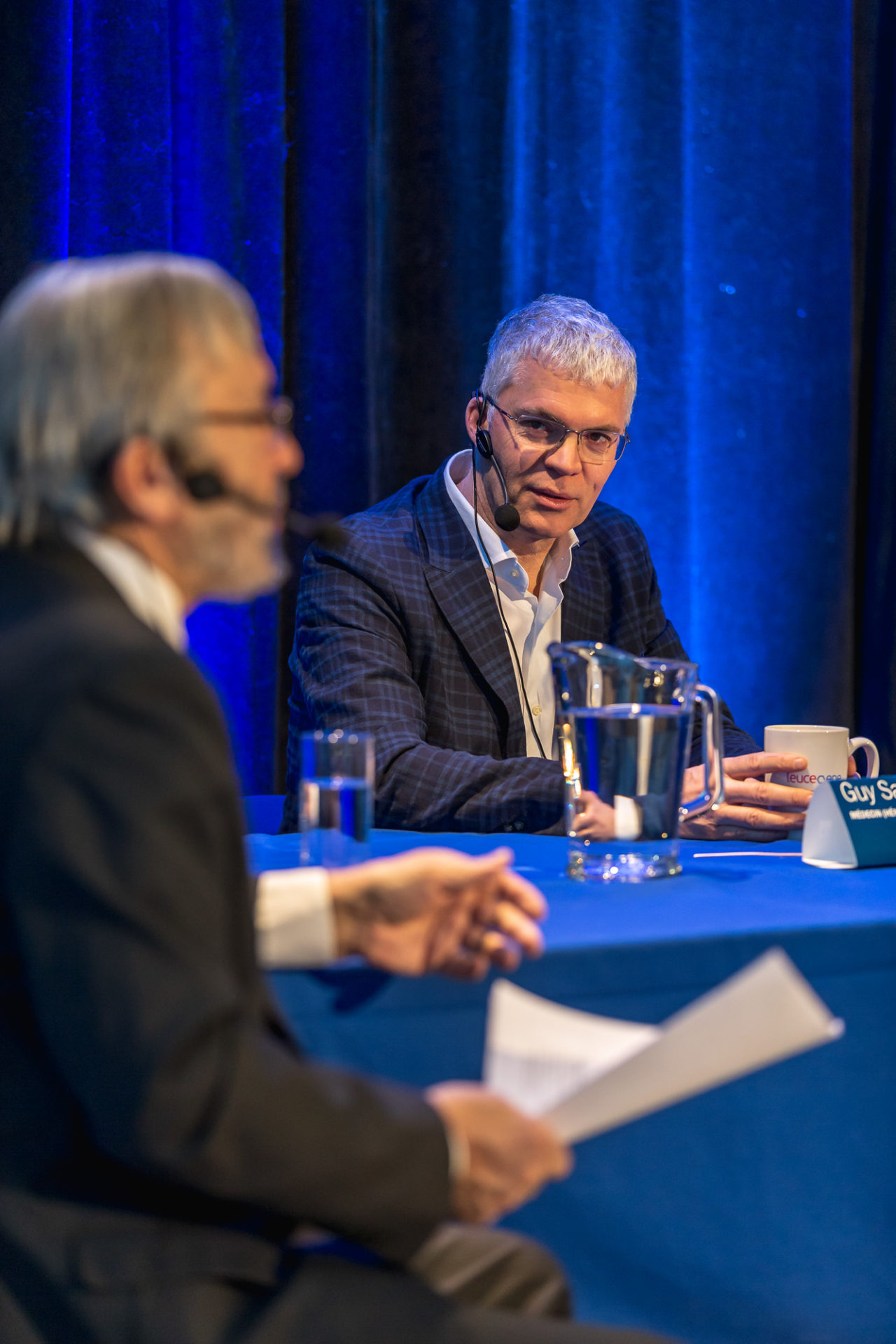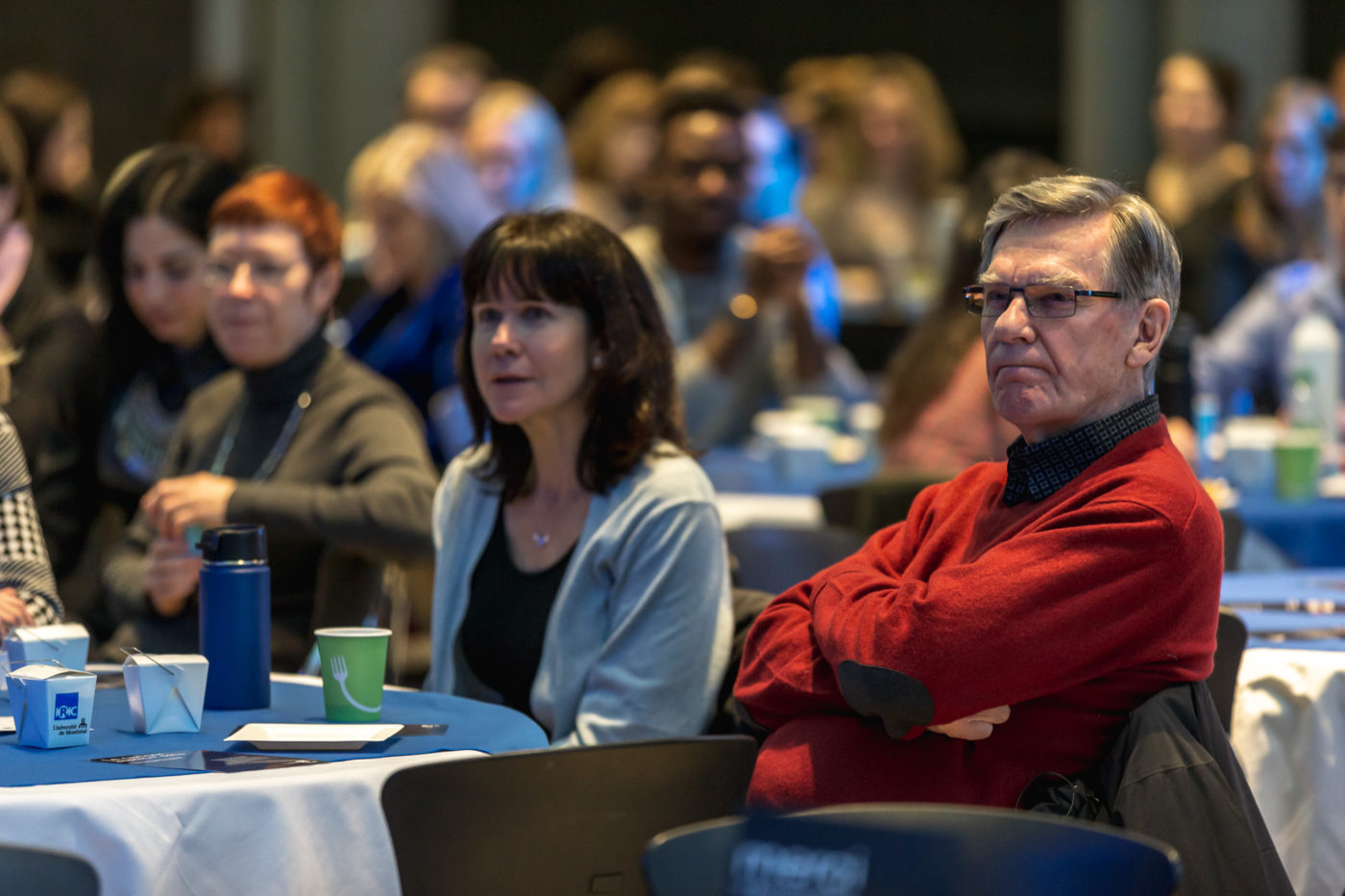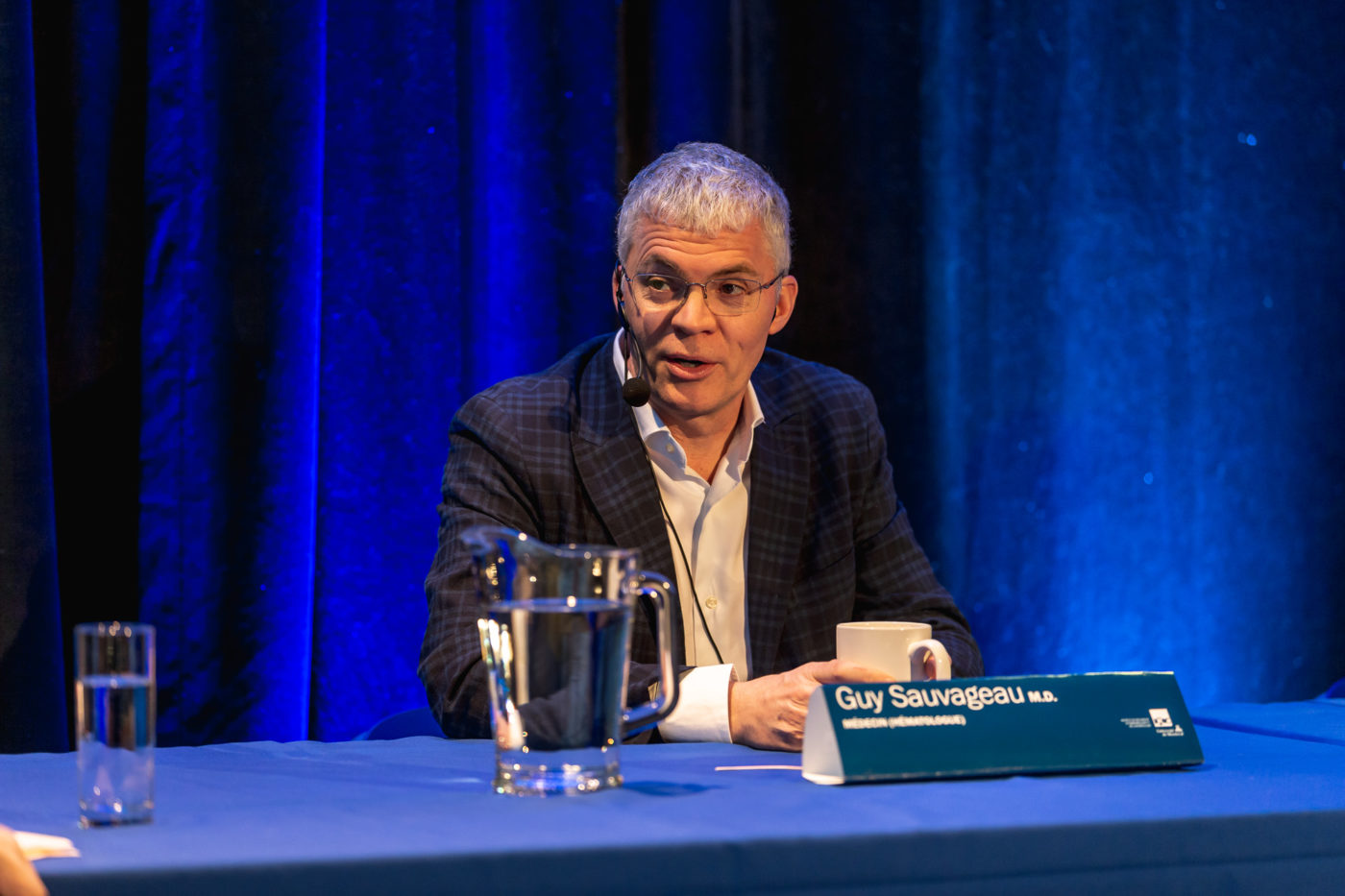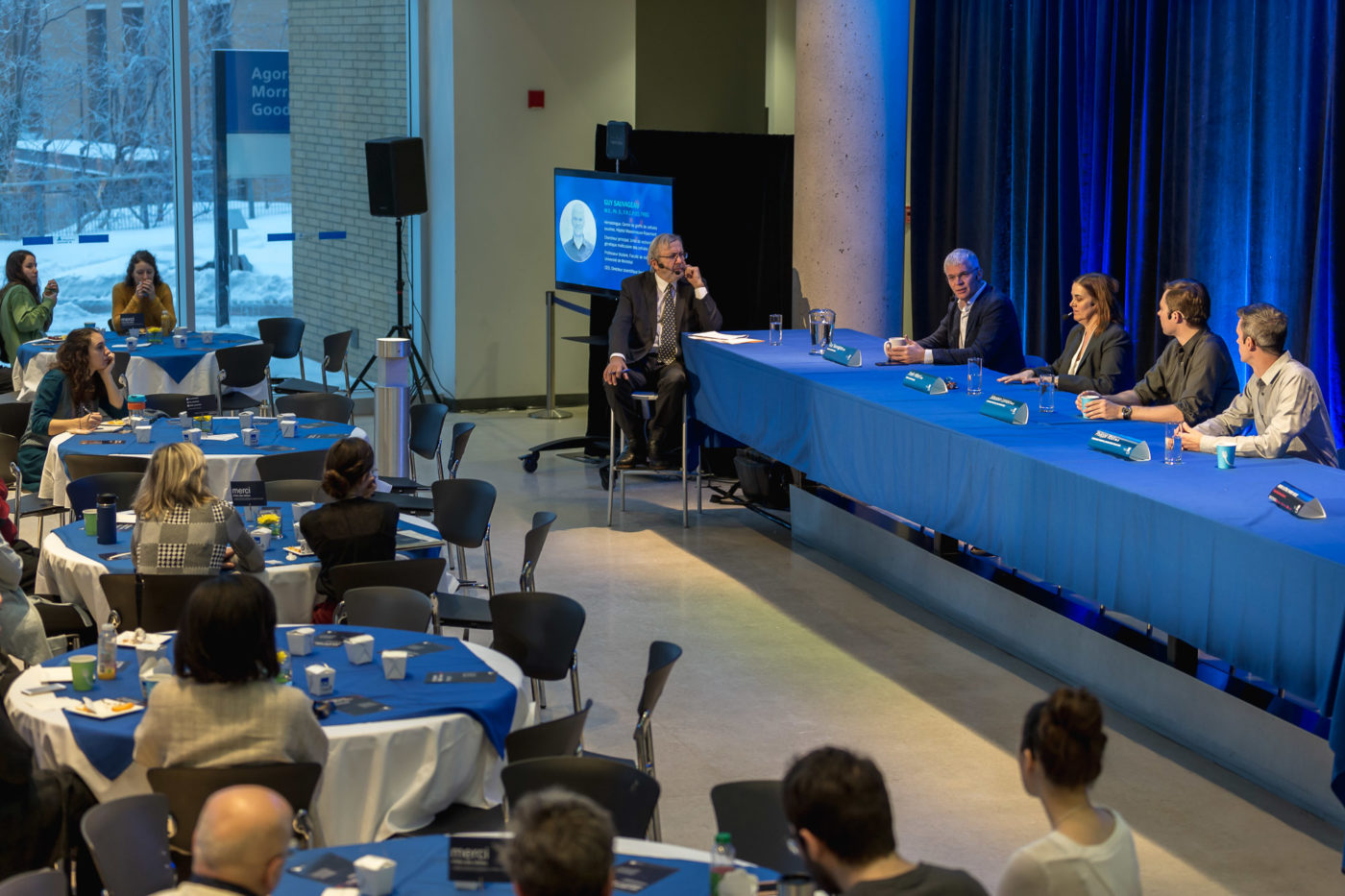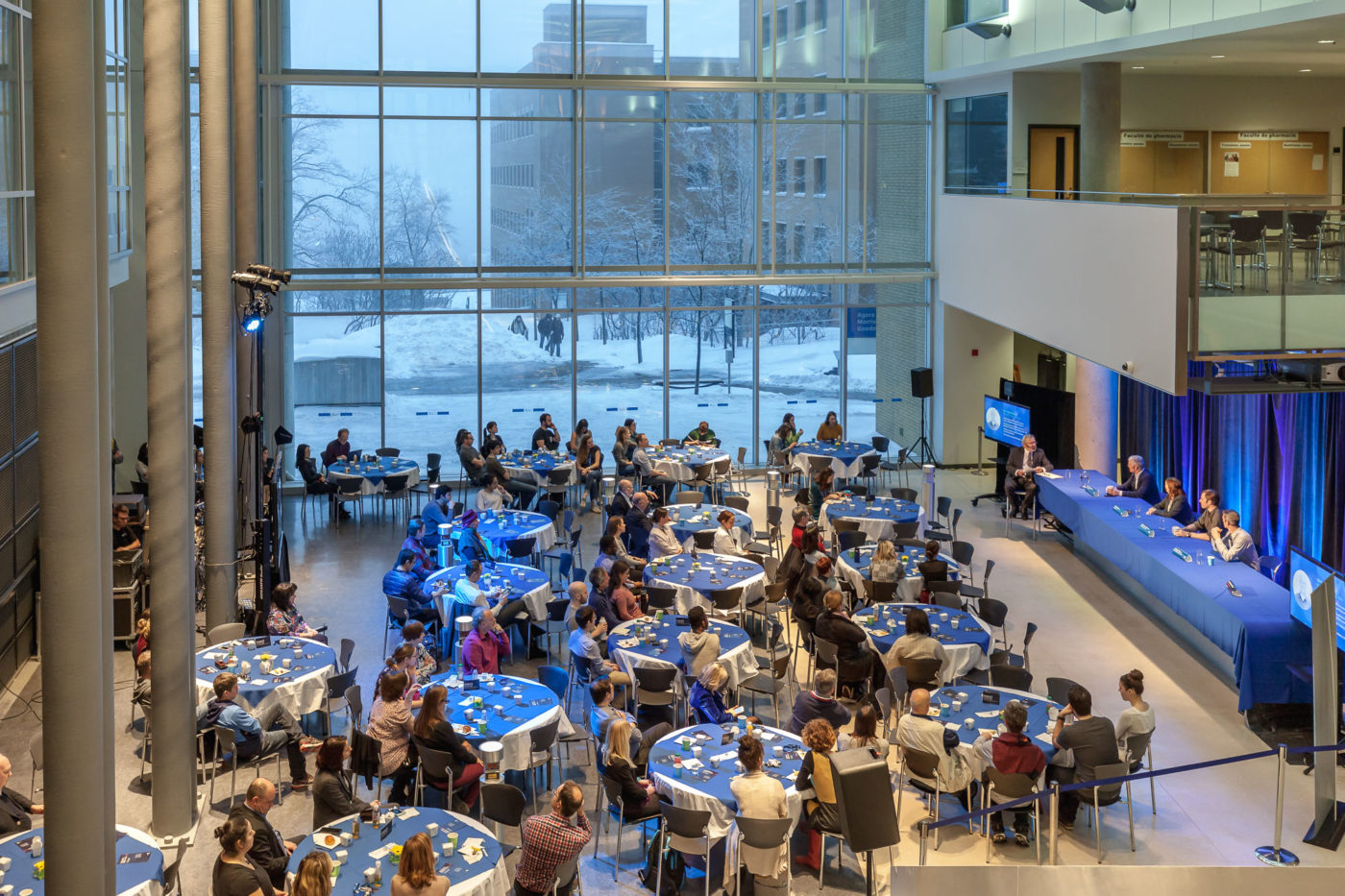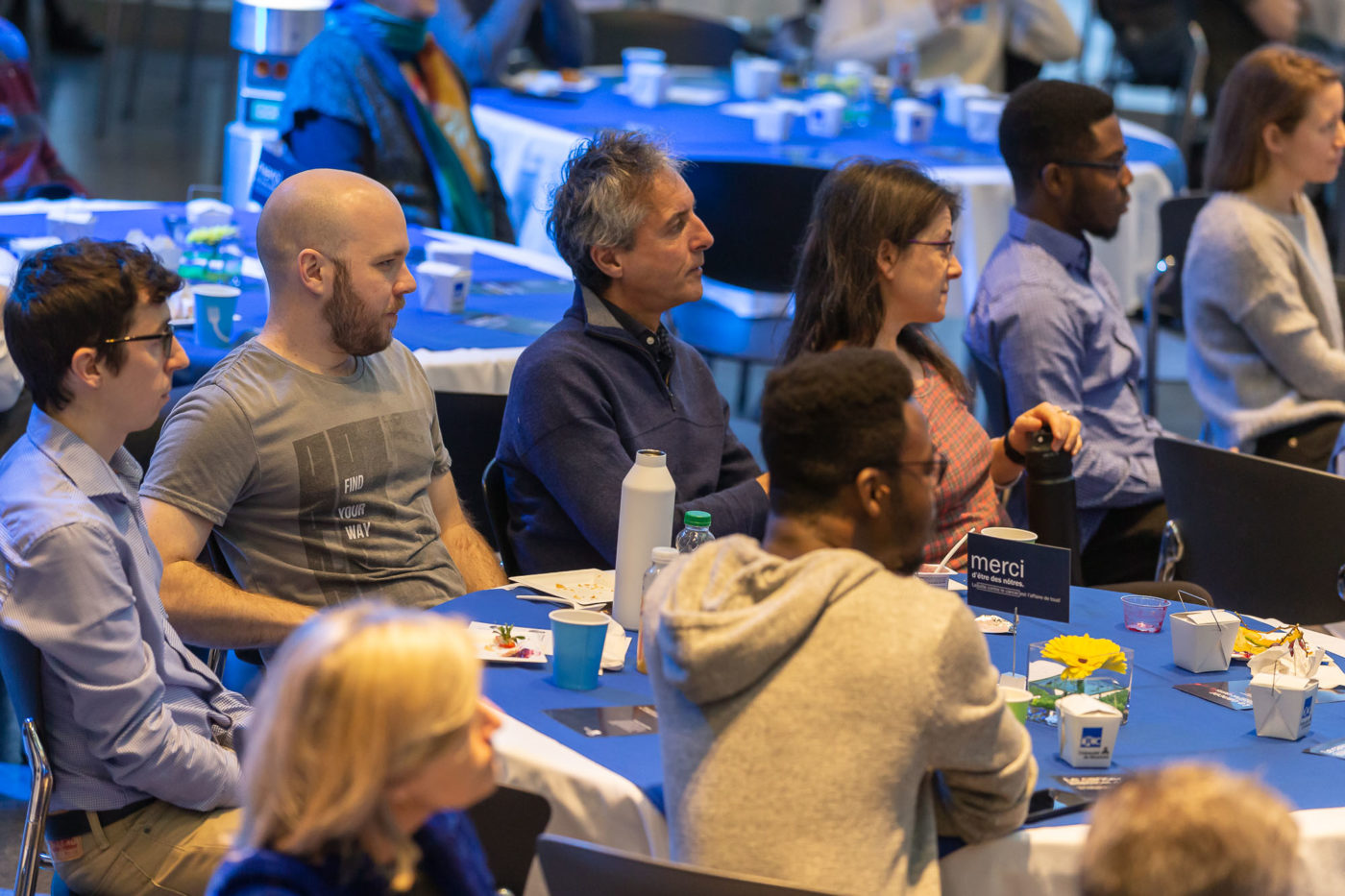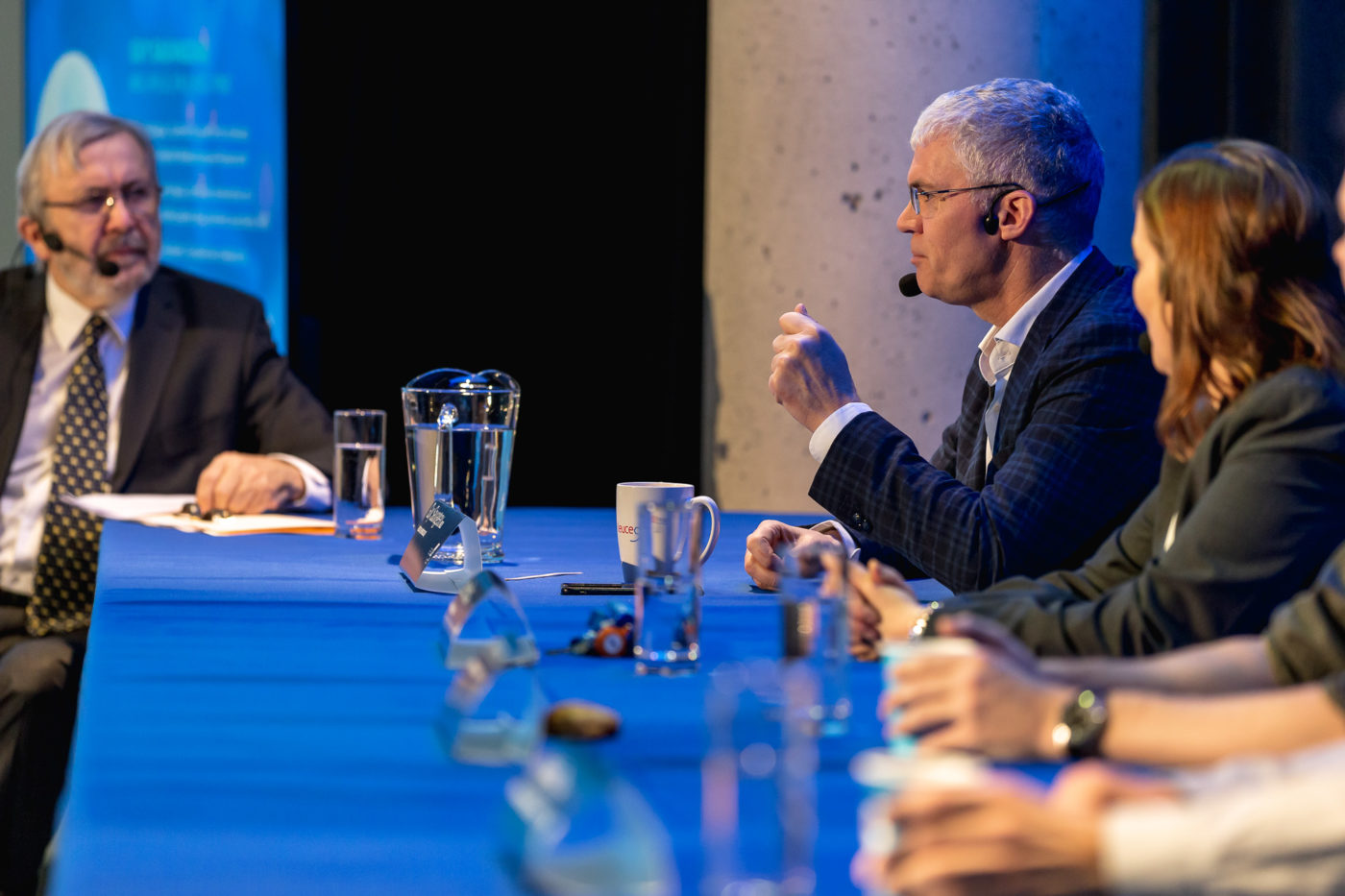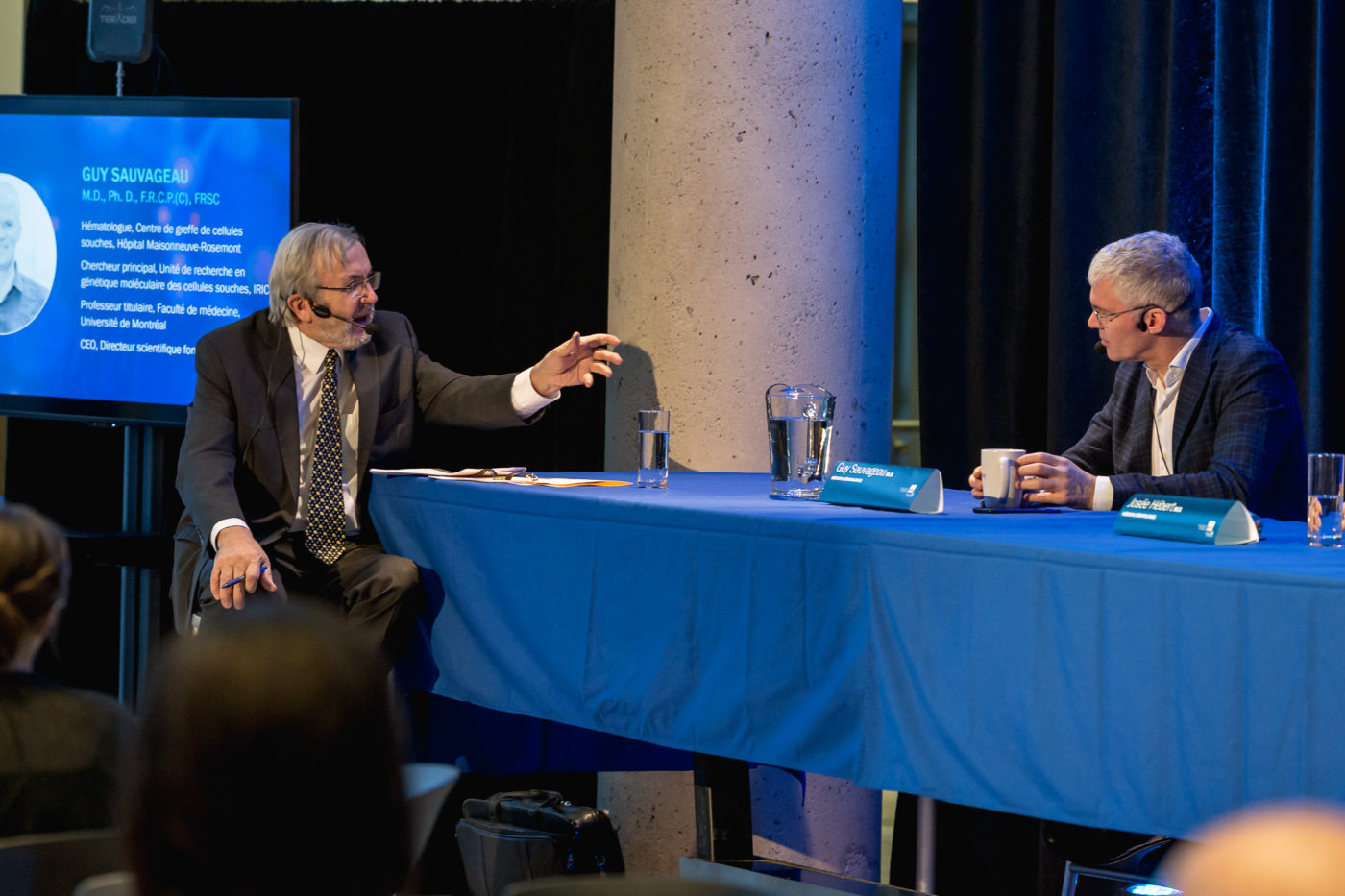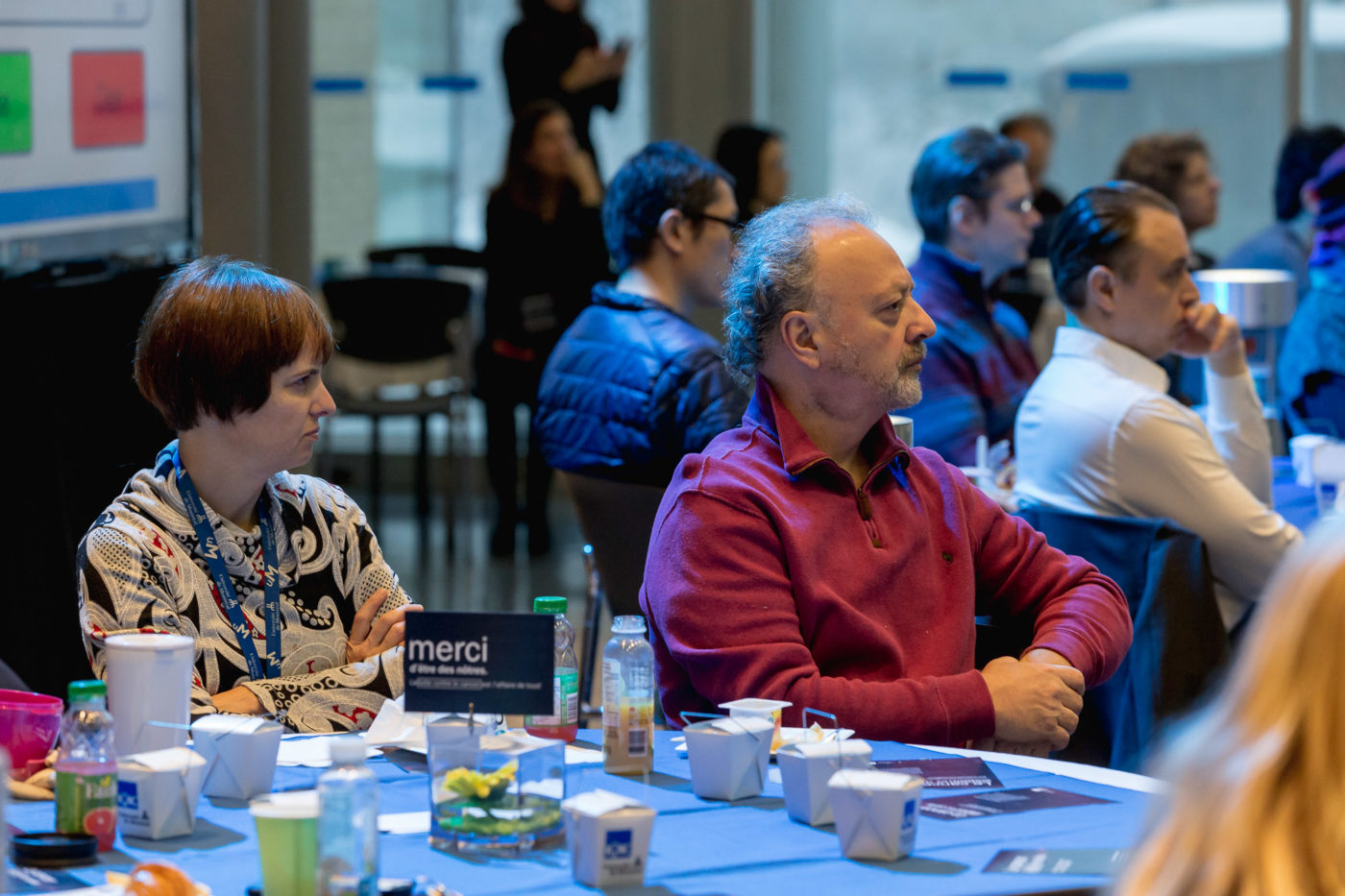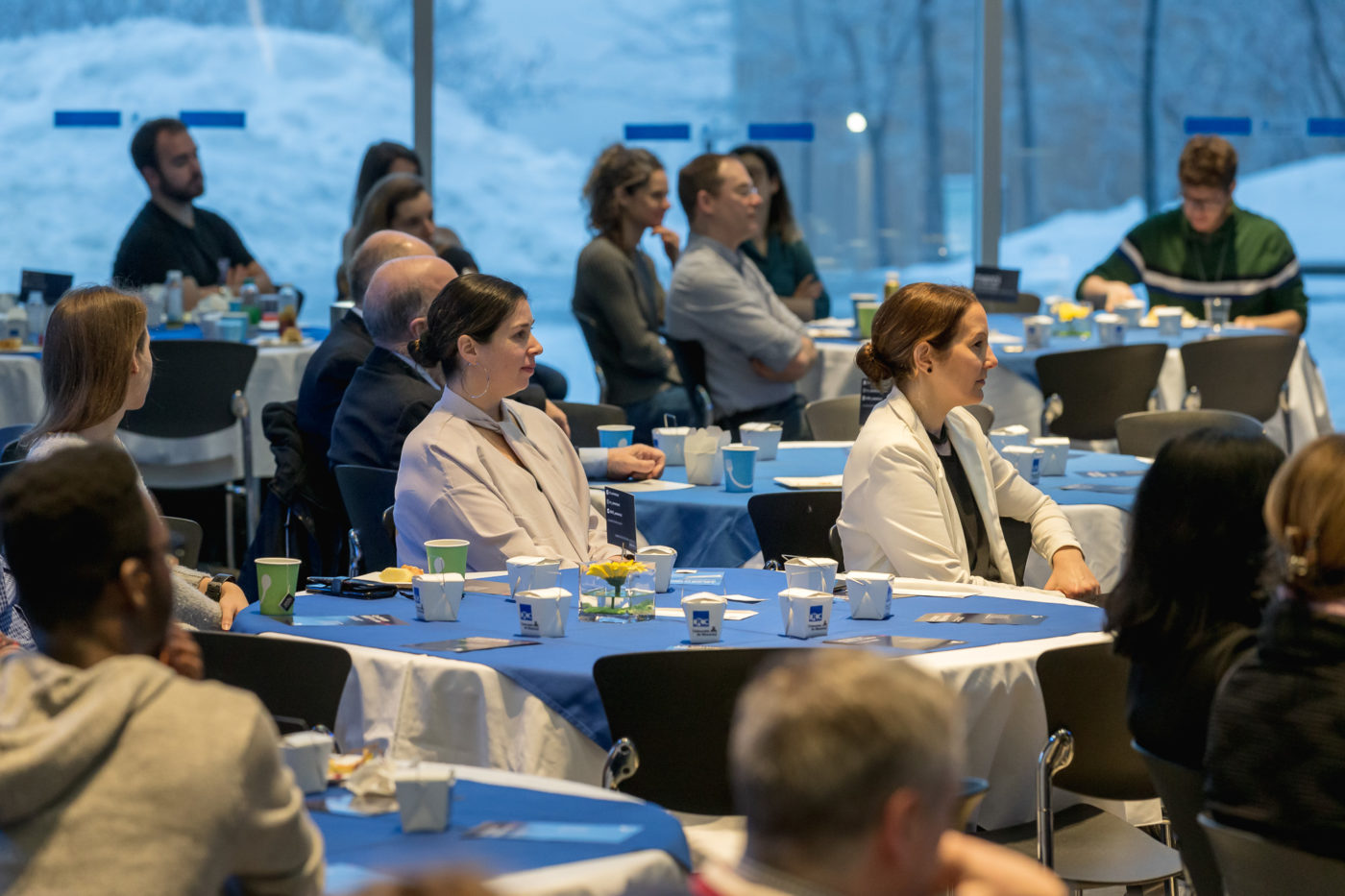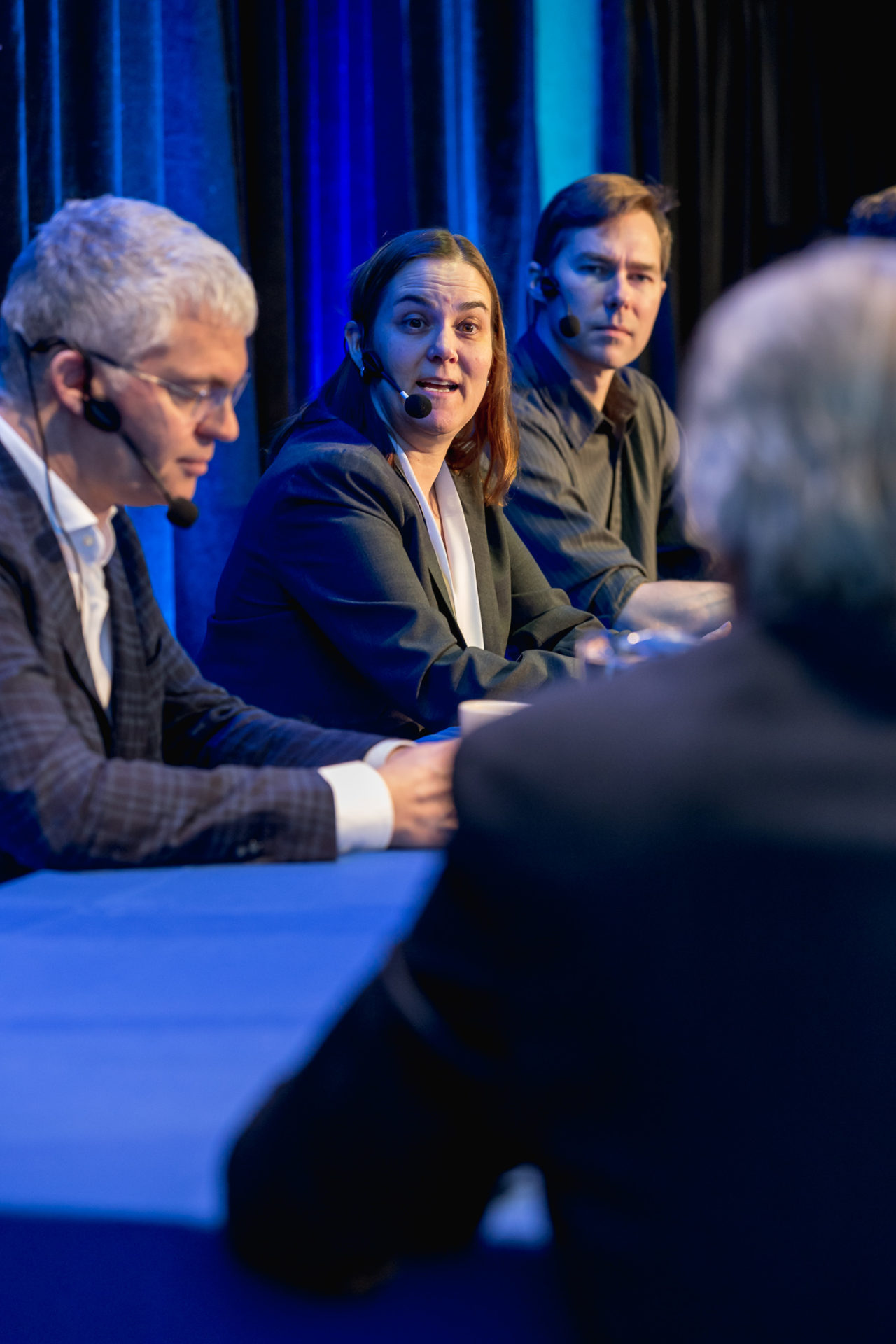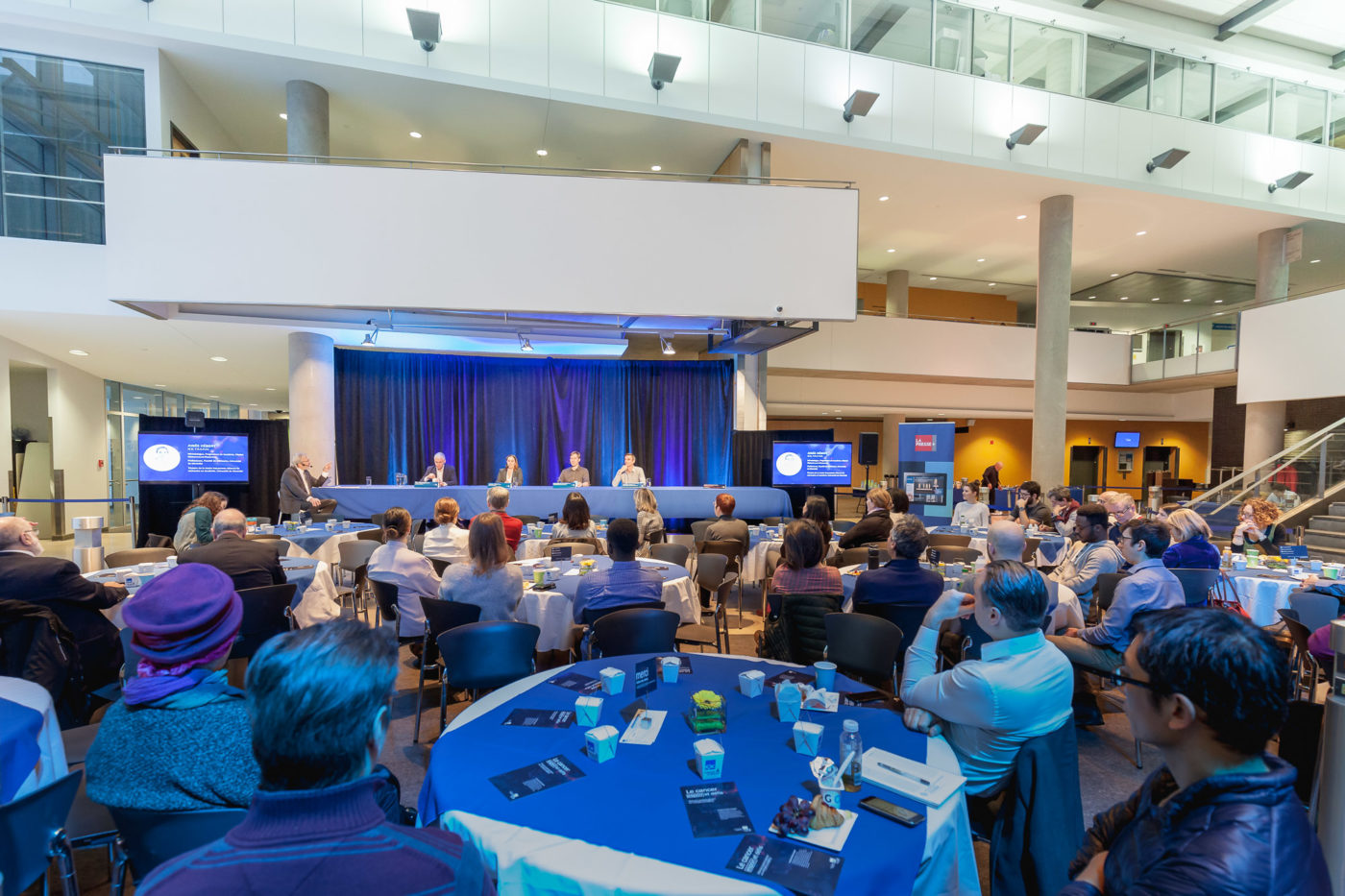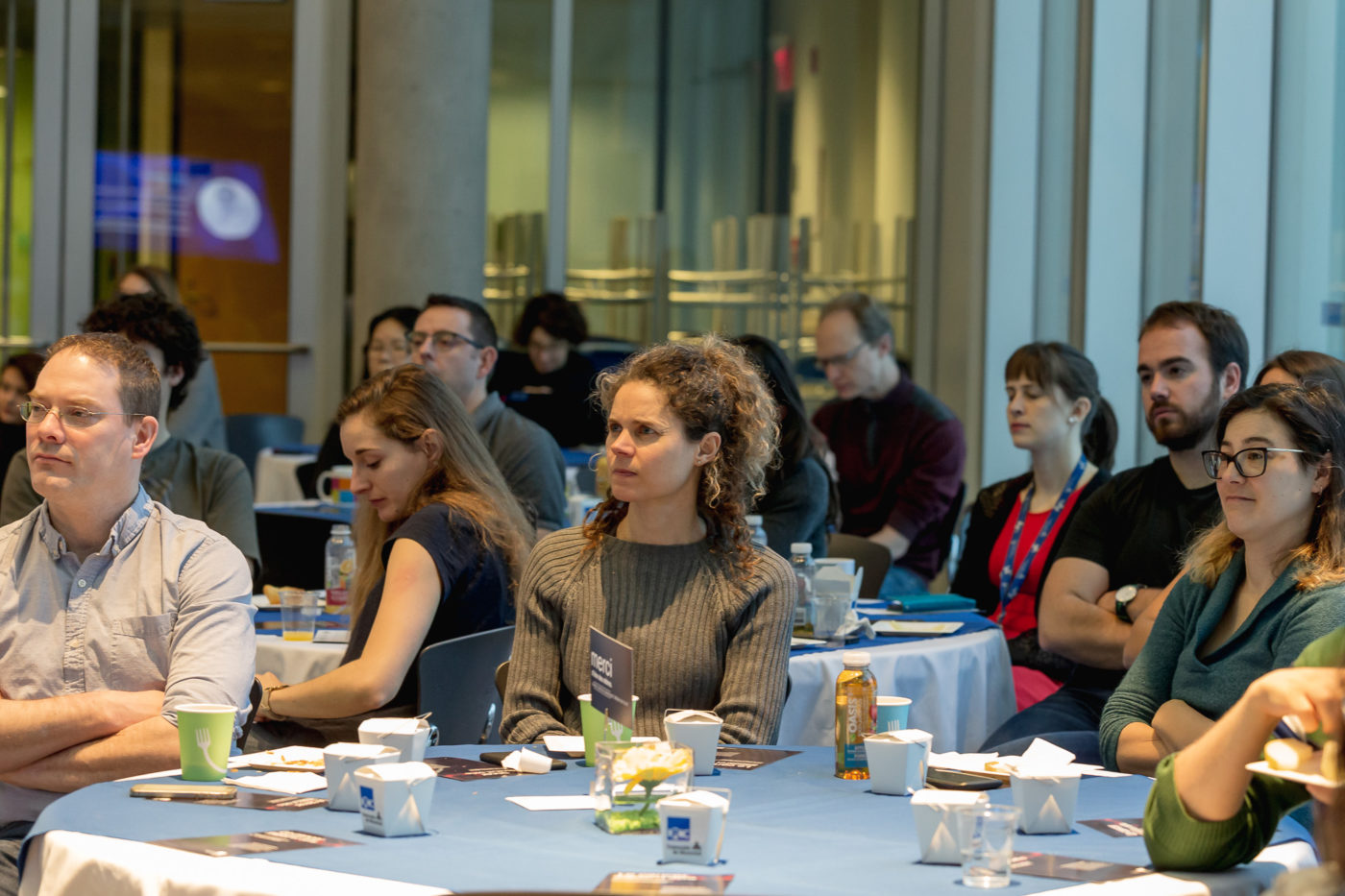News
World Cancer Day 2019
Published on May 10, 2019
For the past several years, on the occasion of World Cancer Day, IRIC has organized a free breakfast-chat for the purpose of popularizing the research work carried out at the Institute. In 2019, the breakfast-chat focused on the Leucegene Project. More than 80 people were on hand to exchange with the panel of Investigators about the hope generated by this innovative project that brings together complementary expertise.
The project’s mission is to develop tools to improve the prognosis of cancer patients. More than 50,000 cases of acute myeloid leukemia (AML) are diagnosed each year in Canada, the United States and Europe. AML is a leading cause of death among young adults, and most patients suffering from the disease die within the space of a few years. The survival rate is approximately 27%. At least two treatment options are currently available: a chemotherapy protocol that has not changed in several decades or a stem cell transplant, which itself involves certain risks for the patients. At this time, the analysis of leukemic cell chromosomes is the tool most often used to determine the prognosis of the disease, but according to data from Génome Québec, this tool turns out to be ineffective in approximately 50% of cases.
A project
Bearing that in mind, the Leucegene Project, launched in 2009, is built around four major pillars: 1) improving the prognosis of patients; 2) discovering new therapies; 3) creating a web portal allowing the transfer of knowledge into clinical application; and 4) assessing the socioeconomic impact of such a project. The project enjoys privileged access to the Quebec Leukemia Cell Bank. The BLCQ, located at the Maisonneuve-Rosemont Hospital, allows it to use the primary samples of patients. As a result, the team can move forward with high-throughput DNA sequencing and the setting up of bioinformatics analysis tools required for identifying new genetic abnormalities.
A pluridisciplinary team
Supported by Génome Québec and Genome Canada, the group is made up of 28 members from 17 sites, spread out over 4 continents. Its strength comes from the complementarity of expertise: in molecular biology and stem cells and in high-throughput screening, in AML treatment and in cytogenetics, in bioinformatics, in chemistry, in RNA sequencing and analysis, in leukemic stem cells, in proteomics and in socioeconomic and legal sciences. The work carried out by the team could result in better predicting the prognosis of leukemia patients. It will also enable the development of new targets that could result from treatment that is better adapted to its patients.
On the occasion of World Cancer Day, 4 members of that team discussed the topic during the course of a Breakfast-chat, hosted by Yanick Villedieu:
- Guy Sauvageau, M.D., Ph. D., F.R.C.P.(C), FRSC, Molecular Genetics of Stem Cells
- Josée Hébert, M.D., F.R.C.P.(C), Immunology-Oncology
- Sébastien Lemieux, Ph. D., Functional and Structural Bioinformatics
- Philippe Roux, Ph. D., Cell Signalling and Proteomics
80 people were on hand to share with them about the hope generated by this innovative project bringing together complementary expertise.
